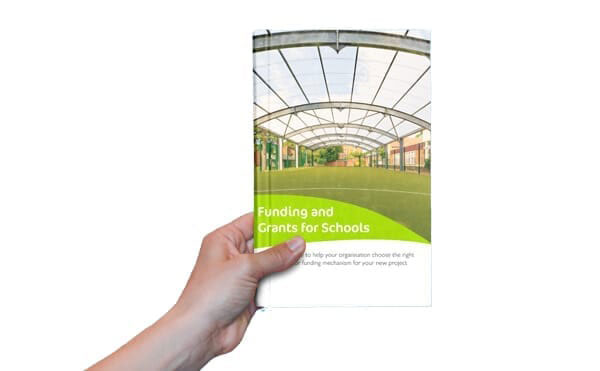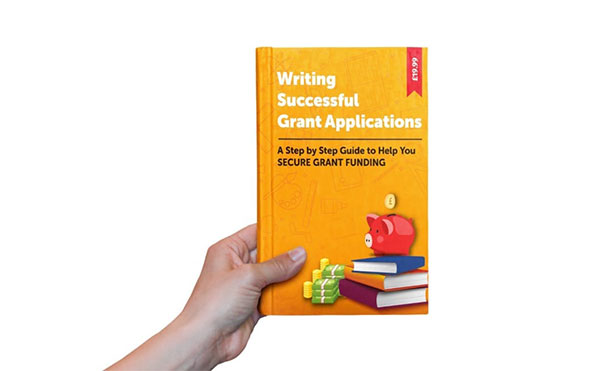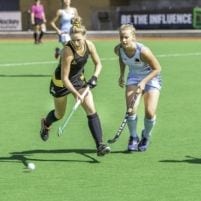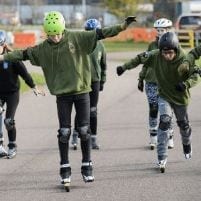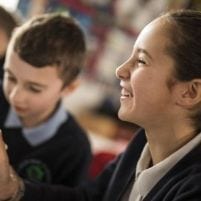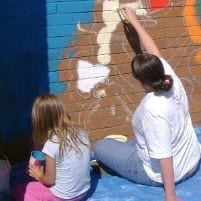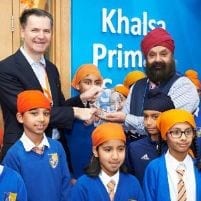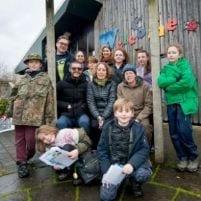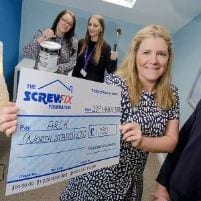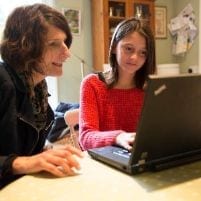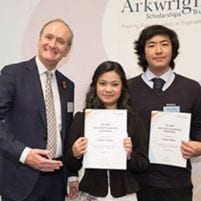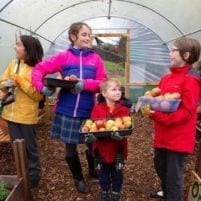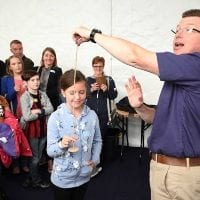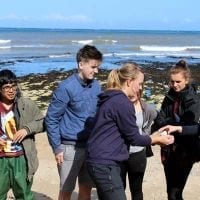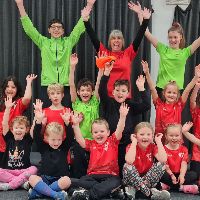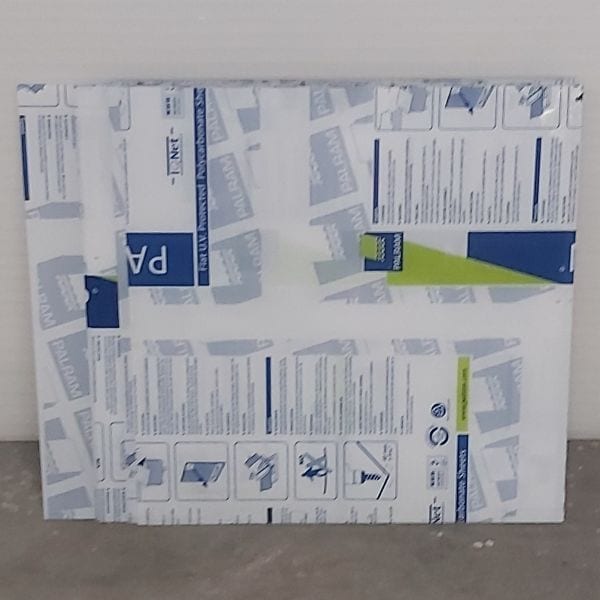Grants For Schools
While your school finances will feel as tight as ever there are hundreds of organisations and grant-awarding bodies that you can apply to for funding for those projects you’ve been planning. A wide range of funding types are available to support all sorts of expenditure from training to playground canopies, curriculum-based activities to sports projects, school visits or arranging, extra-curricular activities through to building and outdoor improvements to your educational spaces.
There are many grant providers which award funds to schools, but it can be hard to find the right scheme and write a successful application. This page contains a range of free resources to assist you in securing funds for your school. Including an extensive list of grant providers and a free ‘Writing Successful Grant Applications’ guide.
We are not affiliated with the grant providers, so if you need more detailed information you are best to contact them directly.
Grants for Schools
Eligible Organisations
Small to mid-sized UK registered charities are able to apply.
Suitable Projects
The Trust funds a range of projects aimed at helping disadvantaged young people, broadening their horizons through sport, adventurous activities, education, the arts or training.
Application Process
Please download the application form on the Trust’s website and complete it by post to the given address.
Important Dates
The Trustees meet four times a year, applications should be received at least six weeks before the meeting date. The remaining meetings for this year are:
27th April 2022, 27th July 2022 and 2nd November 2022.
Funding Range
Typically grants of up to £5,000 are made, although larger sums can be given there the charity can have a larger impact.
Eligible Organisations
Individuals, societies, associations or other bodies in the UK are invited to apply for funding.
Suitable Projects
This scheme funds a wide range of projects, including educational exchanges, research travel, exhibitions and other activities which promote the relationship between the UK and Japan.
Application Process
Schools can apply online.
Important Dates
There are two application deadlines a year, 31st March and 30th September. However, the Foundation advises that you submit your application as early as you can.
Funding Range
Grants between £2,000 and £7,000 are awarded, however, to fund as many projects as possible £3,000 is typically awarded.
Eligible Organisations
Schools in the UK can apply for funding, however they should not already be directly funded by the Institution of Engineering and Technology.
Suitable Projects
A wide range of projects will be considered, particularly those which demonstrate diverse expertise and a range of skills from a variety of sectors.
Application Process
Schools can apply online.
Important Dates
There are two application deadlines a year, 15th April and 7th October.
Funding Range
Awards of up to £5,000 are available for standard applications, and a small number of awards of up to £15,000 are available for projects aiming to make a bigger impact.
Eligible Organisations
Community groups and charities in the UK are able to apply, so ensure your school is a registered charity before you submit your form.
Suitable Projects
The scheme aims to find ‘local good causes’ and so a range of projects will be considered. Previous projects which were awarded funding include turning a disused swimming pool into a school garden and helping a junior rugby club to throw a New Years Eve party.
Application Process
There is a simple online form that needs to be filled in with details about the project and the school. You will also need to explain why your school deserves the donation.
Important Dates
Funding is awarded on a monthly basis so the application form can be submitted at any time during the year.
Funding Range
Up to £1,000 can be donated to each project.
Eligible Organisations
State primary and secondary schools in the UK are able to apply to this scheme.
Suitable Projects
The aim of the funding is to encourage the teaching of classic subjects, so a range of projects which aim to achieve this will be considered. In particular, the scheme states that they offer contributions to resources and books and ongoing support and mentoring.
Application Process
Ring the organisation on 0207 848 4741 or email [email protected]. You will need to supply some information on the school, your reason for introducing classics teaching and a summary of what you plan to do.
Important Dates
No dates or deadlines are mentioned on the Classics for All website.
Funding Range
No specific funding ranges are mentioned on the Classics for All website.
Eligible Organisations
Schools, early year settings, Multi Academy Trusts and informal clusters of schools in the North of England are eligible to apply.
Suitable Projects
A range of projects will be considered, including those which develop communication skills, create stronger relationships between parents and teachers and give parents support to build upon language skills at home.
Application Process
To apply, please first submit an enquiry with an outline of your proposal which includes an overview of the project, how it meets SHINE’s core priorities, the number of children it benefits and the budget.
Important Dates
Deadlines for applications are usually around the end of January, April and October each year.
Funding Range
The normal range of SHINE grant funding for a two to three year project is around £20,000 to £1000,000.
Eligible Organisations
Registered charities, schools and further education colleges and NHS Trusts can apply to the foundation.
Suitable Projects
All requests must fit in with the foundation’s objective and must address at least one of the following:
- Enables individuals to experience mental and physical benefits of sports
- Ensures participatory sport is accessible
- Provides sporting or educational activities that foster life skills
- Aims to improve academic engagement and attainment
- Encourages the development of skills and personal attributes to aid future employability
Application Process
You can apply through the online application form, applications should be acknowledged within six weeks of receipt.
Important Dates
You can apply to the foundation at any time.
Funding Range
There is no maximum or minimum grant size.
Eligible Organisations
Applicants must be a registered charity and have been established for more than one financial year.
Suitable Projects
The trust funds various running costs, such as volunteer expenses, training days and equipment maintenance.
Application Process
Applicants should send a cover letter and full set of the most recent Annual Report and Accounts to the Trust.
Important Dates
There is no deadline for applications, these are processed on an ongoing basis and a response is usually sent within two months of receipt.
Funding Range
Grants range between £300 to £2,000.
Eligible Organisations
Schools, academies, further education colleges and universities are able to apply.
Suitable Projects
The EIF is looking for projects which are disruptive and innovative in their thinking and approach. There is a set criterion which projects must meet, this can be found on their website.
Application Process
Applicants can download an application form; you will also need to log in or register with the Edge network to apply.
Important Dates
The EIF has no closing date, applications will be accepted on an ongoing basis and reviewed at regular intervals.
Funding Range
In 2021, the EIF has a total fund of £300,00 to grant to suitable projects. The minimum funding amount is £20,000 for a single year project, the maximum is £100,000.
Eligible Organisations
Schools in the UK are welcome to apply.
Suitable Projects
This scheme funds investigative STEM projects. The aim of the grant is to allow students to develop key skills, including research, problem-solving and data-handling.
Application Process
Schools can apply online.
Important Dates
The next deadline for applications is the end of November 2021, for funding in January 2022.
Funding Range
The scheme provides funds of up to £3,000.
Eligible Organisations
State-funded schools and colleges in the UK.
Suitable Projects
There are three different grant categories, virtual visits, in-school visits and school trips. More information can be found online.
Application Process
Grants are awarded on a first-come, first-served basis. Schools need to fill in the application form and send it to [email protected].
Important Dates
Grants are awarded on a first-come, first-served basis as funds are limited. Applications are still being accepted for visits and trips up to 31st March 2022.
Funding Range
Up to £75 are available for virtual visits, up to £250 for in-school visits and up to £750 for school trips.
Eligible Organisations
Schools in the UK are welcome to apply.
Suitable Projects
This scheme funds the studies of classical topics and so the following activities would be suitable:
- School talks or events
- Workshops
- Theatrical performances
- Greek and Roman study days
- Transport and entrance fees to attend events
Application Process
To apply for funding, fill in the general grant application cover sheet available on the website.
Important Dates
This organisation makes no reference to any deadlines.
Funding Range
Grants are awarded on a case-by-case basis, typically up to £2,500.
Eligible Organisations
UK-based charities and not-for-profit organisations (this includes schools) are invited to apply.
Suitable Projects
The project must aim to meet one or more of the following three objectives:
- Address the root causes of the main threats to marine conservation in the UK
- Prevent and/or reduce the negative impacts on marine environments
- Add knowledge to the field of marine threats and conservation
Application Process
Applicants can use the Sea-Changer’s website to download the application form.
Important Dates
There are two grants rounds per year. The deadlines are 31st March and 30th September.
Funding Range
Up to £1,200 is available.
Eligible Organisations
There are grants available to schools, institutions, and individuals.
Suitable Projects
Schools can apply for funding for:
- Developing new courses in Greek
- Teaching resources and books
- Classic days and conferences
- Greek plays
Application Process
You can download an application form online.
Important Dates
There are two deadlines each year, the 1st May and 1st October.
Funding Range
Grants are usually between £100 and £500 but larger amounts are sometimes awarded.
Eligible Organisations
Publicly funded schools, free schools, and academies.
Suitable Projects
The MoD states applications must meet 1 of the 5 following funding purposes:
- To offer support for the effects of mobility (i.e. rebasing) and/or separation
- To meet staffing needs (as a result of unforeseen increases in service children)
- To build and maintain relationships between the school, local authorities, and the service families
- To provide educational resources related to the uptake of service children
- For the refurbishment of existing resources (no capital works)
Application Process
To find out more information on the application process, visit the Education Support Fund website.
Important Dates
The application deadline is 30th September 2021.
Funding Range
The MOD does not state a funding range but has a total budget of £3 million.
Eligible Organisations
Schools, not-for-profit organisations, and small charities are invited to apply. Priority is given to groups that apply within the bottom 20% of the most deprived areas in the UK.
Suitable Projects
The funding will cover up to two-thirds of the total cost. The trip can last 1-7 days and can be at any location within the UK. Examples of trips include theme parks, adventure activity centres, the seaside, or museums. All children benefiting must be under the age of 13.
Application Process
The application process is online.
Important Dates
Applications should be submitted at least 6 weeks prior trips to taking place.
Funding Range
Grants range from £500 – £2,500.
Eligible Organisations
The Youth Music Network sets out a number of eligibility criteria on their website. For example, an organisation must be a UK based organisation with a signed governing document. Find out more about eligibility on their website.
Suitable Projects
The projects funded by the Youth Music Network should aim to break down barriers to music-making and music-making activities for children and young people, helping them to develop musically, personally, and socially.
Application Process
You can apply through the online portal.
Important Dates
The deadline for ‘Fund A’ is 30th July. Be aware there are several other grants with different deadlines – make sure you get the right one!
Funding Range
Grants range from £2,000 – £30,000.
Eligible Organisations
The primary intention of the Small Education Fund is for activities where other funding sources are unavailable, however, anyone within the UK can apply.
Suitable Projects
The Small Education Fund will partially fund events aimed at enabling involvement in Maths from Key Stage 1, right up to undergraduate level. Projects should aim to enhance and enrich the study of Maths beyond the curriculum, engage the public with Maths, or explore unusual ways of communicating Maths.
There is also a Teacher CPD Fund available from the London Mathematical Society, find out more online.
Application Process
You can apply by downloading the application form and sending it via post or email.
Important Dates
The deadline is 31st August 2021.
Funding Range
Up to £800 is available.
Eligible Organisations
State-funded schools, academies, and colleges can apply. There’s no limit to their turnover but they must demonstrate that their network goes beyond their individual school. UK-registered charities with an annual turnover of £5,000 – £2.5 million may also apply.
Suitable Projects
Suitable projects will improve educational outcomes and/or life chances for young carers or care experienced young people under the age of 25. Projects should be evidence-based and encourage innovation.
Application Process
You can apply on the BFSS website, there are two stages to the application.
Important Dates
The deadline for stage 1 applications is 8th July. After that, if you’re successful you’ll receive a stage 2 invitation on 12th August, with the final decision being made on 13th October 2021 at the grants committee meeting.
Funding Range
Project funding ranges from £30,000 to £100,000 per project (there is a maximum of £30,000 per annum for multi-year projects).
Eligible Organisations
The grants are offered to state secondary or middle schools. Primary schools are not eligible.
Suitable Projects
The funding is for the purchase of textbooks and resources that solely focus on Christianity. Up to £250 can be awarded for the purchase of examination resources.
Application Process
The application process is online, with the form taking just 10-15 minutes to complete.
Important Dates
There are no specific deadline dates stated, but the current round is specifically for the Spring Term 2021.
Funding Range
Up to £600 is available.
Eligible Organisations
Applications are open to schools.
Suitable Projects
Grants are mainly awarded for the purchase of textbooks and resources, but the committee also offers grants for lecture or study days with a Roman or Latin theme.
Application Process
The application form can be found on their website.
Important Dates
There are three deadlines per year – 1st February, 1st June, and 1st November.
Funding Range
Grants of up to £600 are available.
Eligible Organisations
Anyone can apply, although schools and educational facilities in the UK are particularly encouraged to make an application if they are working on green projects with their students.
Suitable Projects
Sustainable projects which promote green and eco initiatives across the UK are considered for funding.
Application Process
Applications are made on the DPD Eco Fund website.
Important Dates
There are no specific dates stated, however, grants have been rewarded on a regular basis, with DPD already donating over £200,000 to sustainable projects since January 2020.
Funding Range
Grants of up to £2,000 are available.
Eligible Organisations
The scheme is open to universities, higher, further and vocational education facilities and schools registered in the UK or British Overseas Territory.
Suitable Projects
The grants are designed to go towards the administrative, travel and living expenses incurred with foreign exchanges and placements. The grants are intended for use in the 21/22 academic year.
Application Process
The application process is online and will open on 31st March 2021.
Important Dates
Applications open on 31st March 2021 and will be open for a period of 6 weeks. Decisions are likely to be made in July 2021.
Funding Range
Different grant rates are available for different types of students. Visit the Turing Scheme website for more details.
Eligible Organisations
Schools and community groups within the UK are invited to apply.
Suitable Projects
Projects that actively involve young people (up to the age of 21) with the planting of trees and hedges are suitable.
Application Process
Application forms, along with guidance, general information and funding breakdown can be found online.
Important Dates
The 2021 deadline is 31st March.
Funding Range
Strong applications will be fully funded, ranging from a minimum of £300 up to £1,500.
Schools can apply for a small grant to bring people of different ages and backgrounds together through growing, cooking, and eating good food.
Eligible Organisations
Schools, nurseries, charities, and community groups are welcome to apply.
Suitable Projects
The funder is interested in projects that enable meaningful intergenerational activity to take place, with good food as the focal point. You can use your grant to cover event costs (e.g. transport, marketing, food) or equipment (gardening tools, hobs, fridges).
Application Process
You will first need to register your Food for Life Get Together on the programme website. You can then apply for a grant. This can be done by downloading a copy of the application form and sending the completed version by email. Full details can be found on their website.
Important Dates
The small grants are currently closed and will re-open in July.
Funding Range
Grants of between £50 and £150 are available.
Eligible Organisations
Secondary school and higher education geography teachers can make an application.
Suitable Projects
Projects which benefit both the students and wider teaching community through the development of teaching materials are considered.
An example of a past project includes the creation of an interactive tour Kampala. The project, in partnership with the University of Northampton, allowed students to evaluate the extent to which Millennium Development Goals had been achieved.
Application Process
An application form is available online and should be sent to[email protected]upon completion. For further information on the application process, view their website.
Important Dates
The next deadline is yet to be announced.
Funding Range
There are 2 grants of up to £1,000 available.
Eligible Organisations
Both primary and secondary schools and academies may apply for the Science in Schools grant, though they must be state-funded, and demonstrate that pupils would not otherwise have access to opportunity such as this. The application must be completed by someone who is involved in teaching a STEM subject at the school.
Suitable Projects
This grant funds a ‘Science in Schools’ day led by the Royal Institution. Schools can choose from three shows, including ‘Energy Live!’, ‘Explosive food’ and ‘Feel the power’.
Application Process
Applications are completed online.
Important Dates
The 2021 Science in Schools grant scheme will open on Monday 7th June.
Funding Range
The Science in School days are worth £800.
Eligible Organisations
This funding is available to organisations that aim to aid research into learning disability and/or aid the care of those affected by a learning disability.
A clear definition of a learning disability can be found on their website.
Suitable Projects
The grants can be used to purchase equipment, cover staff costs, for capital work, and general running costs. They can also be used to fund community and employment schemes, social activities, and respite for families.
Application Process.
There is an online application process and but a slightly different process for small grants (below £5,000) and larger grants (between £5,000 and £10,000).
Important Dates
The next trustee meeting will be held in June 2021 – all applications wishing to be assessed should be submitted by 1st March 2021.
Funding Range
Grants of up to £10,000 are available.
Eligible Organisations
The school or college must be state-funded, be rated at least ‘good’ by Ofsted, and be able to demonstrate an achieved level of excellence, or demonstrate they are making progress to achieving excellence.
If the applicant is a faith-based school, they must have a non-discriminatory entry policy and at least 10% must be of other denominations.
Suitable Projects
Grants are generally awarded for capital projects such as new builds, refurbishments, or technical equipment. The project should aim to achieve a higher quality of teaching space, a higher number of pupils taking the subject, and improved learning outcomes.
Application Process.
Applicants are invited to apply online through a two-stage application process.
Important Dates
The deadline for stage 2 applications is 1st July 2021.
Funding Range
The typical project range is £2,000 – £100,000 for new build, refurbishment and technical equipment. For equipment projects, the usual range is £15,000 – £50,000.
Eligible Organisations
Grants are offered to schools in deprived areas across the UK. To be eligible:
- A school in England must have at least 35% of children recorded as Pupil Premium.
- In Scotland, 55% of pupils should be in SIMD Deciles 1 to 4, and/or at least 35% eligible for FSM.
- For a secondary school in Scotland, the percentage of students in SIMD Deciles 1 to 4 should be 40%.
Although not currently available in Northern Ireland and Wales, Magic Breakfast encourage applications from all over the UK, as they are currently looking to expand.
Suitable Projects
Funding is used to provide pupils with a healthy breakfast at the beginning of a school day, with expert support if required.
Application Process
Schools are invited to complete an expression of interest form, which can be foundonline. If the school’s records meet the eligibility criteria, their details are kept on a waiting list until funding becomes available.
Important Dates
This has an ongoing deadline, but projects will be funded in the order they are applied for.
Funding Range
This will depend on the needs of the school.
Eligible Organisations
The special school should be a registered charity or run by a local authority with, where applicable, a rating of at least good. It should also be registered with any relevant regulatory authority.
Suitable Projects
The funding is typically awarded to capital projects. This includes new builds, refurbishments, or equipment. In addition, the capital project should aim to achieve one of the following: an increase in access to services for users, an improved quality and greater range of services, and/or greater financial stability for the organisation.
Application Process
Applicants are invited to apply online through a two-stage application process.
Important Dates
The deadline for stage 1 applications is 5th January 2021.
Funding Range
The typical funding range is £20,000 – £75,000. The minimum grant available is £15,000.
Eligible Organisations
The grant is available to secondary and higher educational institutions in the UK and the US. The grants are awarded to teachers who are currently employed either at secondary school level, or within the higher education sector. They must be actively teaching students.
Suitable Projects
The funding is available for project research, development or pilot schemes that support learning in any field of Geography. There should be a direct benefit to the students.
Examples of past projects funded by the award include:
- The creation of resources at the University of Sheffield that tackle the issue of research bias to the Global North. The project was implemented through ethics training.
- The development of resources to help secondary school children to better understand the issues faced by the most marginalised communities and cultures across the world. Debate issues include environmental injustice and Human Rights.
Application Process
Applicants are advised to read the advice and resources guide before completing an application. Completed applications are then sent by email to[email protected].
Important Dates
The deadline is 30th November 2020.
Funding Range
Up to £1,000 is available.
Eligible Organisations
Exclusively for educational bodies – the funding is available to individual academies, Multi-Academy Trusts (MATs), free schools and sixth form colleges across England.
Suitable Projects
The funding is available for the installation of energy-efficient technologies that will help to improve learning environments and reduce energy costs. This funding is only available for projects located in England, however there are dedicated funding programmes for Wales and Scotland too.
An example of a past project funded by the scheme is Parrs Wood, a Specialist Technology College in Greater Manchester, which saw an upgrade to energy-efficient lighting, the installation of a building energy management system, and new automatic doors fitted.
Application Process
Visit their website to start the application process. Applicants will be notified of the outcome in March 2021.
Important Dates
The deadline is 11th January 2021.
Funding Range
A minimum loan of £8,000 is available up to a maximum amount of £200,000.
Eligible Organisations
Primary schools or arts/cultural organisations are invited to apply. All applications will be required to illustrate a concrete partnership with 5-10 other schools, and must include at least one art/cultural organisation.
Suitable Projects
The grant is available for projects that seek to promote learning and teaching through art-based methods in the classroom.
One supported to embed music-based learning across early years curriculum, foundation stage curriculum, and into Key Stage 1. The purpose was to improve pupils’ abilities in areas such as language development. example of a past project funded by the grant is the Chelmsford Teaching Schools Alliance, who were
Application Process
To apply, submit a brief using the first stage application form. If you are successful, you will hear back within two weeks, and will be required to submit a full application.
Important Dates
The deadline for this grant is 20th November 2020 at 5pm.
Funding Range
Six grants of up to £150,000 are available.
Eligible Organisations
State-funded primary, secondary, special schools and pupil referral units in England that don’t currently use a digital education platform or already use one of the platforms but haven’t made accounts for the pupils.
Suitable Projects
Funding is available to help schools set up either G Suite for Education or Office 365 Education, which are free-to-use platforms. You can receive funded support from an accredited partner, who will aid with the set up and training.
Application Process
Schools can apply online, on the digital education platform hub.
Important Dates
No current deadline has yet been set.
Funding Range
Eligible primary schools will receive £1,500, eligible secondary schools will receive £2,000 and funding for academies in trusts is capped at £1,000 per school.
Eligible Organisations
This grant is available to almost anyone, including schools, museums, grant-funded researchers, STFC scientists and engineers, amateur astronomy groups, and science communicators.
All applications must include a researcher in an area of science or technology that is STFC-funded – who may play an active role in engagement activities. However, this is not mandatory, and they may simply act as an advisor on the scientific content.
Suitable Projects
The grant is typically given to projects that cover the following topics: nuclear physics, accelerator science, solar and planetary science, astronomy, particle physics, cosmology and particle astrophysics. Or, clearly align with the work of the STFC.
In 2019, the fund supported a project called ‘Space for You Key Stage Two’ where children with low capital science backgrounds learnt from researchers about themes such as light, space and magnetism.
Application Process
There is an online application form.
Important Dates
Applications will reopen on 9th September. There has been no deadline set just yet.
Funding Range
Grants of up to £15,000 are awarded.
Eligible Organisations
Schools, colleges and home school groups in the UK are all able to apply for this grant.
Suitable Projects
This grant is available for events, activities and projects that promote physics and engineering in young people and go beyond the school curriculum. The grant can be used to cover the cost of materials, marketing and publicity, transport, supply cover (circumstantial) and other appropriate purposes as decided by the judges. Proposals that demonstrate high levels of cost-effectiveness are welcomed.
Applicants are advised that if applying to fund a bought-in show, their applications will be stronger if they integrate this into a wider project. Additionally, applicants are particularly encouraged to submit applications for projects that cover these particular topics: particle physics, transport, space and nuclear physics, energy, design and promotion, built environment, astronomy, or information and communications.
Application Process
Applications can be made through the Institute of Physics platform. Applicants should allow up to five weeks after the closing date for a decision on their project.
Important Dates
There are three deadlines throughout the year, 1st February, 1st June and 1st November.
Funding Range
Grants of up to £600 are available. Normally, projects that require the grant to contribute to a small proportion of the overall project will not be funded.
Eligible Organisations
Grants are offered to both UK charities and individuals, schools, colleges and universities, other educational or research institutions, and any other not for profit organisation. Preference is given to independent organisations and charities.
Suitable Projects
The grant can be awarded to both capital and revenue projects, including grants for apprenticeships or bursaries, however requests for salaries are not considered. The trustees may award grants for any charitable purpose, however, the current policy states that grant-making be focused on the areas of:
- Horticulture and plant sciences
- Fine art
- Art history
Application Process
Applicants are asked to complete an application form, available from their website, and send it along with supporting documents by email or post.
In addition, they ask that applicants include: a business or project plan (if available), an annual report and most recent accounts, the current budget and project budget and any other documents that the trustees or administrator require for the application.
Once applications are received, applicants are informed whether their application was eligible within two weeks. Trustees at this point may ask for further information.
Important Dates
The deadline to make an application is 18th September 2020 at 4pm, to make the deadline of the next quarterly trustee meeting held in October.
Funding Range
Generally, the trustees award projects between £500 – £10,000. Sometimes in exceptional circumstances, they may award grants that are higher than this sum.
Eligible Organisations
Organisations such as special schools, disability clubs, groups and associations can apply. Individuals are also able to apply for funding, including coaches. The trust supports all disabilities including learning disabilities, deafness, physical impairment etc.
Suitable Projects
The grants are available for specialist equipment and wheelchairs that enable disabled people to play tennis.
Application Process
Applications can be made online here.
Important Dates
The trust meets three times per annum. The next deadline for completed applications is 7th October 2020.
Funding Range
Maximum grants of up to £1,500 for a group, and up to £500 for an individual.
Eligible Organisations
Grants are available to both individuals and organisations, including (but not limited to) schools, libraries, community groups, society members and researchers.
Suitable Projects
The purpose of the project should be to reach a wider audience and go beyond that of the academic curriculum. The British Ecological Society want to see a project that:
- Increases public engagement with ecology
- Helps to develop a better understanding of the science
- Stimulates discussion and inspires people of all ages to learn about and take interest in ecology
- Develops communication skills in ecology
- Demonstrates direct evidence of interaction with audiences
They do not fund:
- Staff salaries
- The purchase of equipment, unless it makes up a vital part of the application
- Projects aimed solely at delivering curriculum to school children
Application Process
You can register online and follow the online process.
Important Dates
The second round of funding will open in Mid-July with a deadline of September.
Funding Range
The maximum award is £2000. This may cover the whole or part cost of the project. Larger projects, which are funded by other sponsors, can also be funded.
Eligible Organisations
Primary schools, secondary schools, colleges, and higher education institutions (HEI) are welcome to apply. Primary school projects must involve collaboration with a secondary school, college, or HEI.
Suitable Projects
All sorts of projects and activities relating to mathematics are considered for support. Past projects include mathematical events and competitions hosted in schools, bursaries for teachers to attend conferences, careers days, special exhibitions, and after-school clubs.
Application Process
You need to apply via the IMA Education Grant online application form. Full details can be found on the IMA website above.
Important Dates
The deadline for applications is 30th November 2020. Good luck!
Funding Range
Grants of up to £600 is available.
Website
Eligible Organisations
Registered or exempt charities in the UK, which includes schools, are welcome to apply.
Suitable Projects
Any project that champions STEM education for children and young people will be considered for funding. The funder has a preference for activities taking place in urban areas outside London, for example in the North and the Midlands where there is a manufacturing presence. However, applications for projects anywhere in the UK will be accepted.
Application Process
There is no application form. The funder asks that organisations provide a detailed description of the project with a full budget breakdown. More details on what you should include can be found on the Ironmonger’s Foundation website.
Important Dates
The committee meets three times per year in January, May and September. The deadlines for applications are 1st December, 1st April and 1 August.
Funding Range
No minimum or maximum grant amount is given, but you will need to provide a full budget and explain how you have worked out your costs.
Website
Eligible Organisations
Primary and secondary schools are eligible to apply.
Suitable Projects
You can apply for a grant to help purchase equipment that cannot be purchased through your school’s mainstream teaching budget. Equipment should enrich the learning experience of pupils in primary science or secondary chemistry studies.
Application Process
There is an application form to complete, which can be downloaded from the Royal Society of Chemistry website.
Important Dates
Apply by 15th August 2020.
Funding Range
Grants of up to £1,000 are available.
Website
Eligible Organisations
Not-for-profit organisations in the UK, including schools, are welcome to apply.
Suitable Projects
Projects and activities that educate children, young people, and the local community about the environment, conservation, and the countryside will be considered for support. Past projects funded in schools include a garden club for children and parents and a school trip to a local forest.
Application Process
You are asked to submit a two-page funding proposal, detailing your project, why it is important, and how much funding you need. More information can be found on the Trust’s website.
Important Dates
There is no deadline given, as applications are accepted on an ongoing basis. However, please check the Trust’s website prior to applying in case anything changes.
Funding Range
Grants of up to £10,000 are typically awarded.
Website
Eligible Organisations
Secondary schools, special schools, sixth form colleges, and further education colleges are eligible to apply.
Suitable Projects
Grants are for pupils aged 11 to 19. Trips should have a curriculum focus and involve visiting a partner school somewhere in the world. Applications that demonstrate how young people from disadvantaged backgrounds will be involved in the trip will be prioritised.
Application Process
There is an application form to complete, which can be downloaded from the British Council website.
Important Dates
Apply by 14th February 2020. Funding Range Grants of up to £15,000 are available from the British Council.
Website
Eligible Organisations
Schools, community groups, and other charitable groups are eligible to apply.
Suitable Projects
Grants are given for music projects and help with the purchase of instruments, associated project equipment, and/or teaching costs.
Application Process
There is an online application form to complete. There is a guidance document with important information to help you with your application.
Important Dates
Apply by 1st November 2020.
Funding Range
Grants are available for music-making activities for people of all ages and backgrounds.
Website
Eligible Organisations
Any organisation that delivers UK-based educational activities are eligible to apply. This includes schools, youth groups, STEM organisations, and members of the Institution of Engineering and Technology (IET).
Suitable Projects
Projects that nurture and support the increase of engineering knowledge among children and young people (from the age of 5 to 19) are funded. Recent projects included a school that won funding to design and create an ‘Engineering Escape Room’ and a school that has set up a primary science hub for local schools.
Application Process
There is an online application form to complete.
Important Dates
Please refer to the website for any deadlines.
Funding Range
Grants of up to £5,000 are available. A small number of awards of up to £15,000 are available for projects that make a bigger impact.
Website
Eligible Organisations
Schools, community groups, clubs, and other not-for-profit organisations in England are eligible to apply.
Suitable Projects
The Foundation is particularly interested in projects that help children and young people develop confidence, team working skills, and employability skills. Past projects include those within the following areas: music, drama, sport, art and design, public speaking, vocational training, enterprise projects, and educational trips.
Application Process
There is an online application form to complete and submit. You should read the Grant Policy thoroughly before making your application.
Important Dates
You can apply at any time.
Funding Range
Many grants awarded are under £2,000, although some grants are worth up to £5,000 and more.
Website
Eligible Organisations
Individuals and organisations in the UK are welcome to apply, including schools.
Suitable Projects
Creative and artistic projects are funded, such as music workshops and drama groups. Individuals can also apply for help to purchase instruments or equipment to enable them to pursue their creative interests.
Application Process
There is no standard application form, but you are encouraged to follow the outline provided in the guidance notes. You can download these from the Trust website. The Trust only accepts applications by post.
Important Dates
The Trustees meet three times a year, usually in February, June and October, so you should aim to submit your application the month before the next meeting.
Funding Range
Grants of up to £500 are available.
Website
Eligible Organisations
Schools groups and voluntary youth groups in the UK are eligible to apply.
Suitable Projects
The fund is designed to enable disadvantaged young people (aged between 4 and 18 years) to attend a course held at a Field Studies Council location. They could be disadvantaged in terms of their health, mobility, geographic deprivation, or family income. The courses include non-curriculum days and residential courses.
Application Process
There is an application form available to download from the Field Studies Council website.
Important Dates
There are three deadlines a year: 1st June, 1st November, and 1st March. You can apply at any time during the year and your application will be held until the next round. A new, simpler system will be available from January 2021.
Funding Range
Up to 80% of course fees at a Field Studies Council location are funded, including food and accommodation costs.
Website
https://www.field-studies-council.org/about/fsc-kids-fund/applying-to-fsc-kids-fund.aspx
Eligible Organisations
UK based organisations and individuals are welcome to apply. This includes schools.
Suitable Projects
Projects should enhance the understanding and awareness of Japan and its culture. They should be educational and involve the wider community if possible.
Application Process
There are three ways to apply:
- By completing the online application form.
- By downloading the application form and sending by email.
- By downloading the application and sending by post.
Important Dates
This is a rolling grant programme so you can apply at any time.
Funding Range
Up to £1,000.
Website
Eligible Organisations
Not-for-profit organisations are eligible to apply, including schools, registered charities, community organisations, sports clubs, and social enterprises.
Suitable Projects
A wide range of projects will be considered for funding. Projects should benefit local communities and help to improve lives and local places. This includes holding one-off community events (like family fun days), improving community buildings (including school buildings), developing outdoor spaces (like gardens and play areas) and purchasing specialist equipment for community activities (such as sports equipment or workshop materials).
Application Process
There is an online application form to complete.
Important Dates
This is a rolling grant programme, so you can apply any at time.
Funding Range
Up to £1,000.
Website
https://www.groundwork.org.uk/national-grants/carriers-for-causes/
Eligible Organisations
Schools, teachers and individuals in full-time education in the UK can apply.
Suitable Projects
You can use the grant towards the purchase of musical instruments, musical equipment and training opportunities for school music teachers.
Application Process
An application form can be downloaded from the Universal Music UK Sound Foundation website.
Important Dates
The next deadline is 5th February 2020.
Funding Range
You can apply for up to £1,500.
Website
Eligible Organisations
Schools in the UK are welcome to apply. Breakfast clubs must take place in school.
Suitable Projects
This programme is designed to help children with the greatest need, so priority will be given to schools that have 40% and above of children eligible for pupil premium funding and/or eligible for free school meals.
Application Process
There is an online application form to complete.
Important Dates
There is currently no deadline for this grant programme, but apply as soon as possible to avoid disappointment.
Funding Range
Schools can apply for a grant of £1,000.
Website
Eligible Organisations
Any not-for-profit organisation working in schools and other educational settings are welcome to apply. This includes schools, local authorities, universities, social enterprises and community interest companies.
Suitable Projects
Projects must focus on raising attainment and other educational outcomes for children aged from 3 to 18 with special educational needs. To be successful, projects should be practical, cost-effective, scalable and supported by evidence on the impact on learning outcomes.
Application Process
Applications can be made using the online application system. There is a useful guidance document to help you, available from the Education Endowment Foundation website.
Important Dates
Please refer to the website for the latest deadlines.
Funding Range
There is no minimum or maximum size of grant, but past grants have tended to range from £90,000 to £1.5m.
Website
https://educationendowmentfoundation.org.uk/news/funding-round-to-improve-outcomes-for-sen-pupils
Eligible Organisations
Primary and secondary schools in the UK are invited to apply.
Suitable Projects
The idea of the fund is to help teachers develop new skills, visit partner schools and run community projects around global themes. Grants can be used to cover international travel, training, supply cover and project costs.
Application Process
You can download a copy of the application from the British Council website. There is plenty of guidance on completing your application on the website. Funding decisions are made 6 weeks after application submission.
Important Dates
The last two deadlines for 2020 are 23rd September and 2nd December.
Funding Range
Grants of up to £35,000 are available for clusters of schools working together on a project. Grants of up to £3,000 are available for one-to-one partnerships.
Website
Eligible Organisations
Primary and secondary schools in the UK are welcome to apply. Priority will be given to applications from primary schools.
Suitable Projects
Schools can apply for a grant to help with the purchase of reading books, e-readers, library software, necessary IT equipment and furniture. The majority of funding should be used for reading books.
Application Process
There is an application form to complete, which can be downloaded from the Foyle Foundation website.
Important Dates
Applications are accepted all year round.
Funding Range
Grants of up to £10,000 are available.
Website
http://www.foylefoundation.org.uk/how-to-apply/state-schools.php
Eligible Organisations
All infant, primary and secondary schools in England, Scotland and Wales are welcome to apply.
Suitable Projects
Grants must be used to purchase nature equipment from the product catalogue provided by Learning through Landscapes. An exciting range of equipment is on offer including growing kits and planters, den making kits, insect study centres, outdoor cooking equipment and wildlife kits.
You need to demonstrate your school’s commitment to enriching pupils’ lives through nature and the environment to impress the judging panel.
Application Process
There is an online application form to complete on the Learning through Landscapes website.
Important Dates
Check website for details.
Funding Range
Grants are worth £500. Successful applicants will also receive a two-hour training session from Learning through Landscapes.
Website
Eligible Organisations
Any not-for-profit organisation with a charitable purpose can apply for funding. This includes schools.
Suitable Projects
Projects need to deliver a positive impact on families and align with at least one of the following social themes:
- Health: Help families lead healthier lifestyles
- Financial stability: Help families manage their finances
- Worklessness: Help families recognise the economic and social benefits of employment
- Health education: Help educate families about healthy lifestyles
- Aspiration: Help raise career aspirations to improve prospects for them and their families
- Employability and skills: Help raise employment prospects for family members seeking employment
Application Process
There is an online application form to complete.
In order to access the application form, you will need to answer a few eligibility questions. These questions can be found on the Community Grants web page.
Important Dates
The 2020 deadlines are as follows:
Quarter Two: Opens 13th November 2019, closes 10th February 2020
Quarter Three: Opens 13th February 2020, closes 11th May 2020
Quarter Four: Opens 13th May 2020, closes 12th August 2020
Funding Range
Grants of up to £250 are available.
Website
https://www.warburtons.co.uk/corporate/sustainability/community/grant
Eligible Organisations
The Foundation welcomes applications from not-for-profit organisations and local registered charities.
Suitable Projects
A wide range of projects are considered for support. They need to involve the improvement of facilities for community use. In particular, they are looking for projects that help disadvantaged people and/or people living in deprived areas of the UK.
Application Process
There is an online application form to complete, which asks you about your project and the potential beneficiaries.
Important Dates
Applications are reviewed on a quarterly basis in February, May, August and November.
Funding Range
Grants of up to £5,000 are available.
Website
Eligible Organisations
- Voluntary or community organisations (including registered charities or companies, or social enterprises).
- Schools
- Community councils
- Statutory bodies
Suitable Projects
A range of activities may be funded upon application, including:
- Running events or activities
- Purchase of equipment or materials
- Improving community buildings or play facilities
- Volunteer expenses
- Cost of transportation
- Costs for staff
Application Process
There are two main steps to completing the application:
- Download the latest application form
- Complete the application form and send to the email or postal address provided on the form
When Awards for All Scotland assess your application, they will consider the following:
- Project need based on evidence provided in the application
- The difference the project will make in the community or to its people
Important Dates
There are no deadlines for sending completed forms, as applications can be made at any time. However, the application must be submitted at least four months before the project is planned to start.
Funding Range
Grants of between £500 and £10,000 are available.
Website
Eligible Organisations
The following organisations are eligible to apply for this fund:
- State schools where the project delivers a clear benefit to the local community
- UK registered charities
- Not-for-profit organisations
Suitable Projects
The Trust funds capital and equipment projects under the following themes:
- Conservation projects that protect wildlife and improve biodiversity
- Social enterprise projects that support vulnerable and disadvantaged groups
- Community renewable energy projects.
The Trust has recently awarded a grant of £1,000 towards the building of a sensory garden shelter in a school.
Application Process
There are two ways to apply for funding:
- You can complete the online application form.
- You can download a copy of the application form to complete and send by post or email.
Both application forms can be found on the Naturesave Trust website.
Important Dates
Applications can be submitted at any time.
Funding Range
£1,000 to £3,000
Website
Eligible Organisations
The following organisations are eligible to apply for this fund:
- State schools where the project has a clear benefit to the local community
- UK registered charities
- Charitable Incorporated Organisations (CIOs)
- Places of worship if the building is being used for wider community activities
Suitable Projects
Capital projects that benefit the local community will be considered for support. This includes:
- New buildings or extensions to existing buildings for community use
- Improvements to existing buildings
- New fixed playground equipment or multi-use games areas
- Large expensive items such as equipment for a community kitchen or training room
Application Process
You can access the application guidelines on the Garfield Weston Foundation’s website to check your project’s eligibility for funding.
Then there is a simple online application form to complete which will ask you about your organisation, project and community.
Important Dates
This is a one-off grant programme. Please refer to the website for any deadlines.
Funding Range
£30,000 to £150,000 and they will fund 100% of the total project costs.
Website
Eligible Organisations
The grant is open to UK charitable organisations only.
Suitable Projects
There are no restrictions on project types (capital projects, other projects and core costs are all considered), but it must fit into one of the following categories:
- Arts and heritage
- Education
- Environment
- Health
- Social or economic disadvantage
- Application Process
Applications must be received in November, December and January. These will then be reviewed at their meetings held in February, March and April respectively.
Important Dates
Applications must be received in November, December and January. These will then be reviewed at their meetings held in February, March and April respectively.
Funding Range
Grants are usually made between £2,500 and £25,000.
Website
Eligible Organisations
Only applications from UK registered charities as well as special needs schools in the UK will be considered. Only organisations with an annual income of less than £1,000,000 may apply (this restriction does not apply to special needs schools or mainstream schools with a special needs unit).
Suitable Projects
There are three categories which projects must fall into:
- Supporting young people with special needs
- Supporting disadvantaged young people
- Supporting people with cancer
- Application Process
There is an online application form which must be completed and submitted. A representative of the Foundation will normally visit the organisation to review the project.
Important Dates
There are no deadlines or closing dates. Applications are reviewed as and when they are received. The whole process may take between four to six months.
Funding Range
The maximum funding to be applied for is £10,000 in any two-year rolling period.
Website
Eligible Organisations
To be eligible to apply, the organisation must be:
- A charity or not-for-profit organisation
- Youth group
- Schools and colleges
- Involved with disadvantaged and minority groups
- Involved in helping people with the greatest need
Suitable Projects
There are no set guidelines to the types of projects that may be accepted.
Application Process
There is no official application form, but the website details strong guidance as to how the request should be submitted. Applications should be sent via post or email to the secretary.
Important Dates
There are no deadlines. Applications can be made when required.
Funding Range
The funding range is between £100 to £10,000, with the average amount being £1,000.
Website
Eligible Organisations
Registered Charities and Overseas Charitable Organisations are eligible to apply. The charities must also have been registered for at least three years.
Suitable Projects
Grants are usually made for the following projects
- Buildings – Funding modifications to homes, charities, special schools, hospices, etc
- Respite – Funding towards short-term respite breaks and registered respite centres
- Equipment – Provision of equipment to assist independent living
Application Process
When applying, charities must send the requested information on the organisation’s headed paper. Only postal addresses will be accepted via the address provided on the website.
Important Dates
There is no deadline for application. However, when making an application, confirmation of acceptance of their terms and conditions must be made.
Funding Range
There is no specified funding range, but large grants in excess of £100,000 will be an exception.
Website
Eligible Organisations
The following conditions exist for eligible organisation to apply:
- The organisation is a charity or community school within a 15 mile radius of a Moto site
- Moto staff will have an opportunity to be involved in the project
- Support will be provided for Moto fundraising events
Suitable Projects
No specific project types are listed, but it must be community charity or community school based.
Application Process
There are three separate online application forms, for the following purposes:
- If you are already an approved school or community partner
- If you are a Moto employee wishing to apply to behalf of a community partner or adopted school
- If you are a community organisation or adopted school and wish to apply for direct funding
All applications are online, and the relevant guidance must be read and complied with. The approval process can take up to six weeks.
Important Dates
There are no deadlines. Applications can be made when required.
Funding Range
The average grant given is £1,000. Larger grants may be awarded following a strong application.
Website
Eligible Organisations
Only registered charities are eligible to apply for funding.
Suitable Projects
Projects must have a clear benefit for UK based recipients either through education, better welfare, youth schemes, or supporting the elderly. Although there are no exact limits to project types, the following list provides some examples of activities which are likely to be applicable for funding:
- Sensory toys and equipment for children with special needs
- Items to care for isolated and/or vulnerable elderly people
- Support of specially adapted equipment to be used by people with physical / mental / communication disabilities
- Apparatus for children with special needs
- Items or tangible social activities for community centres providing a benefit to many in the local community
- Provision of tangible and social interaction activities for those who are vulnerable and/or isolated
Application Process
The application form, available on the website, should be emailed to the Foundation.
Important Dates
There are no set application deadlines, but decisions will be made at Trustee meetings in March, June, September and December of each year.
Funding Range
Up to £3,000 of funding per project is available.
Website
Eligible Organisations
The Foundation welcomes applications only from small charities and community groups.
Suitable Projects
No specific project types are listed, but it must fit into one of the following categories
- Young people, particularly those who are disadvantaged
- Vulnerable groups
- Small neighbourhood groups
- Supporting communities and voluntary organisations through assisting them in the achievement of social and community development
Application Process
There is an online application process connected to the organisation’s local area. The local Community Foundation can be contacted directly with any queries.
Important Dates
There are no set application deadlines, but the grants panel from each Community Foundation meet on a bi-monthly or quarterly basis to consider applications.
Funding Range
Up to £2,000 of funding per project is available.
Website
https://www.coventrybuildingsociety.co.uk/your-society/community.aspx#tabs-3
Eligible Organisations
Eligible organisations include:
- Educational establishments, only where the wider community has significant opportunities to use the amenity, the amenity can be accessed via an entrance that is separate from the school and the amenity is run by an organisation that is separate from the school
- Community and voluntary groups
- Parish councils
- Charities
- Community interest companies
Suitable Projects
Funded projects include those that:
- Provide or improve public amenities that are used primarily for leisure and recreation, including play area improvements
- Maintain, repair or restore historic buildings, structures or sites
- Conserve the biodiversity of an area
Application Process
Please follow these steps to apply:
- Check your project’s eligibility for funding by using the postcode checker and reading the guidance notes
- Complete and submit the Stage One application form online, which is a short eligibility check
- Complete and submit the Stage Two application form online, which requires a project budget and supporting documents
Important Dates
A Stage One application can be submitted at any time. You will then be given full details of deadlines dates for your Stage Two application.
Funding Range
£1 to £50,000
Website
https://www.suezcommunitiestrust.org.uk/apply-for-funding/england/
Eligible Organisations
Applications are generally considered from registered charities only, but it may also support groups affiliated with charities.
Suitable Projects
Community based projects which aim to relieve suffering, hardship of poverty or their direct consequences, are eligible for funding. The following project causes are supported:
- Homeless people
- Adults and children with physical and mental disabilities
- Older people
- Underprivileged families
- Deaf, blind and partially sighted people
- Community projects benefiting local residents
- Victims of natural and civil disasters in the UK
- Scout, Guides and playgroups
Church projects will be considered only where they involve community outreach and benefit (e.g. supporting the homeless, disadvantaged families).
Application Process
There is an online application form.
Important Dates
Applications must be submitted 28 days before the next meeting date. The next meetings are 9th September and 4th November.
Funding Range
Funding can be made in the range of £250 and £1,000. This funding must be used for capital expenditure.
Website
https://www.leedsbuildingsociety.co.uk/your-society/about-us/foundation/
Eligible Organisations
Any not-for-profit organisation can apply, with preference being given to small, locally-based and community-led organisations with a turnover, not in excess of £300,000 per annum. Schools are also encouraged to apply and are given the same level of priority as small locally based organisations.
Suitable Projects
The Trust is interested in projects which improve the physical environment in ways that will improve people’s lives. This may include the purchase of equipment, sessional salary costs, purchase of trees/plants, small capital projects and learning activities. Innovative and sustainable ways to improve the local environment are also applicable.
Application Process
An online application form should be completed, which will then be reviewed by the foundation.
Important Dates
See website for application dates.
Funding Range
The maximum grant is £2,000.
Website
Eligible Organisations
Eligible organisations must support people in need. Any not-for-profit organisation can apply, however, larger organisations with a turnover in excess of £300,000 are unlikely to be successful.
Suitable Projects
Projects such as sessional activities/respite support, equipment for sessional activities, trips and residential breaks are available for funding. Innovative and sustainable ways to improve communities are also applicable. They do not fund running costs or the continuation of existing and ongoing work.
Application Process
An online application form should be completed, which will then be reviewed by the Foundation.
Important Dates
Round one of 2020 will close on the 23rd February 2020. The decisions will be announced on the 5th May 2020.
Funding Range
The maximum grant is £2,000.
Website
https://www.greggsfoundation.org.uk/grants/local-community-projects-fund
Eligible Organisations
- Registered charities
- Non-fee paying or state sector schools / parent teacher associations
- Not-for-profit organisations
- Suitable Projects
- Contributions to capital projects (e.g. refurbishments)
- Capital expenditure items (e.g. furniture/equipment/computers)
- Contributions towards the purchase of new Ford Vehicles
- General funds
Application Process
Guidance together with a downloadable or postal application form is available from the website of the Trust. The form must be completed and returned via email or post to the address given.
Important Dates
Applications for small grants will be accepted until the 29th February 2020.
Applications for large grants will be accepted until the 31st January 2020.
Applications received after these dates will not be accepted and will be put forward for inclusion in the next application cycles.
Funding Range
Two grants are available, with the following funding ranges:
Small Grants – up to £250 are available four times a year
Large Grants – between £250 and £3,000 are available twice a year
Website
https://www.ford.co.uk/experience-ford/about-ford/ford-britain-trust
Eligible Organisations
Registered charities are eligible to apply. In addition, it also helps smaller voluntary organisations in Nottinghamshire which are too small to qualify for charitable status, but who still desperately need some financial support for their projects.
Suitable Projects
Although exact project types are not listed, projects should fall into one or more of the following focus areas:
- Health
- Lifelong learning
- Community development
- Social care
Application Process
Nominations are reviewed bi-monthly by a Board of Trustees. Deadlines for receipt of applications are 7th of February, April, June, August, October and December. The application process can take between two to four months.
Important Dates
See website for key dates.
Funding Range
The available funding range is between £100 and £10,000.
Website
http://www.boots-uk.com/corporate_social_responsibility/boots-charitable-trust.aspx
Eligible Organisations
The Foundation is only able to support UK registered charities unless the organisation has ‘exempt’ status – This is restricted to churches, hospitals, educational establishments and housing corporations.
Suitable Projects
Projects can include specific activities, programmes or capital projects (e.g. building and equipment).
Application Process
An online application form is available, as well as a postal form. Four months should be allowed for a decision to be reached.
Important Dates
There is no deadline for the programme. Applications are welcomed at any time.
Funding Range
The grant range is generally between £1,000 and £100,000. Any requests for over £100,000 must be directed to Trust before submitting an application form.
Website
Eligible Organisations
Only UK registered charities who support UK projects can apply. Local authorities are not supported through this grant.
Suitable Projects
Although there are no exact project types outlines, the Trust is particularly keen to support:
- Hydrotherapy pools
- Multi-sensory rooms
- Minibuses
- Young carers projects
- Sibling projects
- Bereavement support
- Specialised play equipment
Application Process
An application form, available from the website of the Trust, should be completed and submitted to the given address.
Important Dates
There is no deadline for the programme. Applications are welcomed at any time.
Funding Range
Grants of up to £10,000 are available.
Website
Eligible Organisations
The Foundation makes grants to registered charities only. These must fulfil one of two chosen categories of focus:
Improving the education of young people
Improving the health of young people
Suitable Projects
- Registered charities
- Disadvantaged young people
- Specific projects such as refurbishment and equipment.
- Training courses and activities
- One-off or medium terms projects up to £30,000 per annum
- Projects which show community involvement, efficiency and impact
- Faith groups
- Schools and hospitals
Application Process
After reviewing the grant guidelines and procedure, an application form, available from the website, should be returned to the email address provided.
Important Dates
Applications are welcomed quarterly.
Funding Range
Grants of up to £30,000 (per year) are available. Funding is also available, upon request, for up to two years of a particular project.
Website
Eligible Organisations
Eligible organisations must meet the following criteria:
UK charities or not-for-profit organisations
The organisation must be working in one or more these programme areas – alcohol and substance misuse, disabled people, disadvantaged and minority communities, disadvantaged young people, domestic and sexual violence, older people, homelessness, prisoners and ex-offenders and visual impairment
For a Main Grant, annual income must be below £15m
For a Small Grant, annual income must be less than £250,000
Suitable Projects
The grants provided are aimed at one-off capital projects, such as:
- Buildings – purchasing, constructing, refurbishment or renovation
- Fixtures, fittings and equipment
- Vehicles
Application Process
Review the grant guidelines and frequently asked questions and decide on whether the Small or Large Grant Programme should be applied for an eligibility quiz should then be completed, which will provide access to the online application form.
Important Dates
There is no deadline for the programme. Applications are welcomed at any time.
Funding Range
The Trustees ask that a specific amount is not requested. The Board will decide the amount of grant to be awarded.
The Main Grants programme generally funds 10% or more of the project cost balance.
The Small Grants programme generally funds between 50% and 100% of the balance, up to a maximum of £10,000 (or £15,000 if it is a vehicle).
Website
Eligible Organisations
Applications from youth organisations or organisations with affiliation to national youth organisations such as UK Youth or National Association of Boys and Girls Clubs will be considered.
Suitable Projects
Funding will be considered for the following projects:
- Items or equipment – occasionally improvements of youth club premises, equipment or facilities will also be considered
- Those that benefit UK based young people, aged from 8 to 18
- Sustainability projects of over one year
Application Process
After reviewing the grant guidelines and frequently asked questions, an application form, available from the website, should be returned to the email or postal address provided.
Important Dates
There is no deadline for applications. They are accepted at any time of the year.
Funding Range
There are no set funding ranges, but the average grant is between £250 and £600.
Website
Eligible Organisations
Organisations must either be based or operating within the county of Bedfordshire. They must be either a registered charity or considered to be charitable in nature by the Inland Revenue. The Trust does not provide support to individuals.
Suitable Projects
No suitable project types are supplied as examples.
Application Process
Once the online guidelines have been read and complied with, an online application should be completed and submitted.
Important Dates
See website for deadline. Trust meetings are held January, April, June and November.
Funding Range
The usual funding range is between £1,000 and £10,000. However, there are some donations outside of this.
Website
Eligible Organisations
The following criteria must be complied with:
The organisation must be connected with the sport of rugby
- Be of a charitable nature
- Work with and support young people or children in some way
- Suitable Projects
- Suitable projects may fall into one of the following categories:
- Health and wellbeing
- Sensory rooms and gardens
- Specialist equipment and facilities
- Playgrounds and outdoor activities
- Education projects
- Application Process
After reviewing the full criteria, a form can be downloaded from the website and sent to the provided email address or postal address.
Important Dates
There are no set deadlines for applying.
Funding Range
There is no set minimum or maximum value, but it is stated that physical projects under £5,000 in value will be unlikely to have sufficient substance or scale to qualify.
Website
Eligible Organisations
Eligible groups include:
- Local community groups
- Self-help or voluntary groups and charities
- Individuals acting for the benefit of the local community
- The primary focus of an organisation must fall into one of the following categories:
- Children/education
- Health
- Fairtrade
- Homelessness/poverty
- Arts & culture
- Environment
- Elderly
- Active lifestyles
Suitable Projects
No examples are provided, but the project must:
- Address a community issue or support a local community initiative
- Provide benefits to the local community
Application Process
An application form is available on their website. This can be completed at least eight weeks prior to the date on which the grant is required.
Important Dates
Applications can be made at any time.
Funding Range
There is no set funding range.
Website
https://www.scotmid.coop/community-and-charity/supporting-local-communities/community-grant/
Eligible Organisations
Eligible groups include:
- Schools and colleges
- Childminders, playgroups and nurseries
- Allotment associations, community gardening projects
- Youth groups including scouts, guides and cadets
- Registered charities
- Hospices
- Conservation groups including The Conservation Volunteers and Forest Schools
- Community projects organised by local churches and other religious groups
- Women’s Institute, Lions Clubs, Rotary, Townswomen Guilds
- Royal British Legion
- Adult education projects, University of the Third Age
- Other local community groups
Suitable Projects
There are no project requirements as such, but the organisation must fit into a category listed above and the local community or environment must benefit from the donation.
Application Process
For further information, please contact your local store directly and speak to a duty manager.
Important Dates
There are no deadlines as requests are made as required in store.
Funding Range
There is no funding available, but materials are donated for beneficial community causes.
Website
Eligible Organisations
- Voluntary or community organisations
- Schools
- Health bodies
- NHS trusts
- Parish/Town Councils and local authorities
- Social housing providers
Suitable Projects
The following projects may be eligible to receive funding, although the list is not exhaustive of all opportunities:
- Improvement of local nature routes
- Development of community allotments, gardens and growing projects
- Developing sustainability-based learning programmes
- Developing art trails
- Park events
- Clean up events, such as on a beach
- Improving play areas
- Improving leisure events and activities
- Britain in Bloom events
- Under 12’s football facility improvements
Application Process
An eligibility quiz must first be taken.
An application form will then be available, which should be downloaded, completed and returned to the given address
Important Dates
Check the website for further details. Generally, applications can be made at any time owing to the monthly rolling award system.
Funding Range
Every month three projects in each region will be awarded a grant based on the number of votes received: first place receives up to £5,000, second place up to £2,000 and third place up to £1,000.
Website
Eligible Organisations
The following organisations are supported by the fund
- Not-for-profit organisations
- Charities
- Local good causes
Suitable Projects
Projects which carry out the following may be supported:
- Benefit the wider community
- Improve the local community
- Capital projects (building, renovations, vehicles etc.)
- Equipment, such as IT and audio/visual
Application Process
Applicants must approach their ‘Community Champion’ in the nearest Asda store to check if they are eligible to apply, or use the online Eligibility Checker.
Important Dates
There are no set deadlines. Applicants can check in store at any time.
Funding Range
There is no specified guidance.
Website
Eligible Organisations
- Charities
- Voluntary organisations
- Schools
- Churches
- Community interest groups
Suitable Projects
A range of projects are funded but the project must follow these principles:
- Helping young or disadvantaged people
- Safeguarding children
- Enabling participation by children and young people
Application Process
To apply, the following steps must be followed:
Read the online guidance documents, such as ‘Planning your Project’
Submit an initial application using the online system
Important Dates
Please refer to the website for any deadlines.
Funding Range
Grants are available for project requests of up to and including £10,000, for one year only.
Website
https://www.resourcecentre.org.uk/information/bbc-children-in-need/
Eligible Organisations
- Charities
- Voluntary organisations
- Schools
- Churches
- Community interest groups
Suitable Projects
A range of projects are funded but the project must follow these principles:
- Helping young or disadvantaged people
- Safeguarding children
- Enabling participation by children and young people
Application Process
To apply, the following steps must be followed:
- Read the online guidance documents, such as ‘Planning your Project’
- Submit an initial application using the online system
- This will be followed by a full application if accepted
Important Dates
See online.
Funding Range
The ‘Main Grants’ programme is aimed at projects over £10,000 per year and to support projects for up to three years. There is no upper limit, but only a few grants ever receive more than £120,000 or £40,000 per year.
Website
https://www.bbc.co.uk/programmes/articles/3XW7FvN20PD3xr2c1T62Xly/main-grants
Eligible Organisations
The Foundation will consider grant applications from charitable organisations only.
Suitable Projects
Projects with the following objectives may apply for funding:
- Amateur sport advancement
- Improvement of community participation in sports and health activities
- Physical education programmes for young people
- Provision of facilities, courses, training programmes and resources to enable, assist and encourage the education of those in leadership
Application Process
To apply, simply email the Foundation with the details of the request.
Important Dates
No deadlines are specified.
Funding Range
No maximum value is specified.
Website
https://sapca.org.uk/funding-opportunities/robin-greaves-foundation/
Eligible Organisations
- Charities
- Local authorities
- Education establishments
- Community amateur sports clubs
- Community interest companies
- Social enterprises and other not-for-profit organisations
- Sports clubs and groups
Suitable Projects
Only capital projects may receive funding, such as large equipment, new facilities or building.
Application Process
An online application form available from the link included below must be completed.
Important Dates
Application deadlines:
11th March 2020
27th May 2020
Funding Range
There are two grants available:
Small Capital Project Grants
The Small Capital Project Grants Programme provides awards of between £5,000 and £19,999 to small projects which aim to increase participation in sports.
Major Capital Project Grants
The Major Capital Projects Grants Programme provides funds of between £20,000 and £150,000 to build or renovate facilitates to improve participation from people who do not regularly participate in sport.
Website
Eligible Organisations
Organisations, amenity groups and friends’ groups who are able to improve public open spaces
Applicants who demonstrate efficient management and community involvement
Applicants should be concerned only with green spaces which are open to the public.
Suitable Projects
The following project types are suitable for funding:
- New planting activity
- The provision of raised beds, troughs and trellis in connection with the above
- New benches
- Purchasing manual hand tools
- Biodiversity projects
Application Process
Review guidelines on the main website
Complete and send the application form, with attached information, to the email address provided on the website
Important Dates
Deadlines for each application review are as follows: End of January, April, July and December.
Funding Range
The grants normally range from a few hundred pounds up to £1,500 with occasional exceptions.
Website
Eligible Organisations
- Charities
- State schools
- Independent schools with charitable status
- Local authorities
- Exempt charities (i.e. Churches)
- National organisations with a track record and reputation in the local area
In addition, the project must be aimed towards children and young people up to the age of 25 who live in boroughs in north-west London (Harrow, Barnet, Brent, Ealing, Kensington & Chelsea, Hammersmith and Fulham, Westminster, Camden).
Suitable Projects
The following costs are suitable for receiving grants:
- Capital costs (building works, furniture or equipment)
- Revenue costs (salaries or running costs)
- Project costs
Application Process
A proposal letter must first be sent to the Trust. If successful, an application form must then be completed and returned for assessment. There is no online application form, and a proposal letter must be sent to receive this.
Important Dates
For the Main Grants Fund and Schools in Partnership Fund, there are three deadlines throughout the year in September, January and April. Once the proposal letter has been accepted, the organisation will be advised of the exact dates.
In addition, there are no set deadlines for Small Grants or the Access to the Arts Fund.
Funding Range
The maximum School Explorer Fund award is £2,000 but most awards will be under £1,000. The Small Grants Fund’s maximum amount of grant is £5,000. The Main Grants Fund has no upper limit, but the amount you request must be supported with detailed budgets. Schools in the partnership have an upper limit of £50,000 per annum.
Website
Eligible Organisations
Only registered charities who have an income of less than £1 million in the previous year’s accounts, may apply. For registered charities with a headquarters based outside of Northern Ireland, the income of their Northern Ireland operation, shown in their management accounts, will be used.
Suitable Projects
Funding may be available for the following purposes:
- Core costs
- Materials and equipment
- Salary costs
- Volunteer expenses
- Project costs
- Refurbishment
- Activities
- Training
- Disabled access
- Transport Costs
Application Process
There is an online application form, which can be viewed using the website links above. Guidance and advice documentation should be available.
Important Dates
A rolling grant programme is in operation, and therefore an organisation can apply to the Foundation at any time.
Funding Range
The average grant is between £3,000 and £4,000.
Website
https://www.halifaxfoundationni.org/programmes/community-grant-programme/
Eligible Organisations
The following organisations may apply:
- Charities
- Not-for-profits
- Community groups
- Schools
- Sport groups
- Suitable Projects
The following projects may be eligible for funding:
- Young people development
- Art projects
- Facilities used for sports
- Environmental improvement and conservation
- Improvements to community facilities such as village halls
- Support for the disabled or elderly
- Improvement of volunteering
Application Process
Read guidelines and check eligibility
Complete and submit application documents using the online form
Important Dates
The Trust does not have any published application dates, however, grants are awarded once a year. Applications begin to be invited in January, with deadlines in March.
Funding Range
The normal level of grants is from £1,000 to £5,000, but the minimum is £250.
Occasionally, larger grants may be considered if the impact is targeted to benefit a significant number of people and is considered to be good value in the longer term.
Website
Eligible Organisations
The following organisations may apply for funding:
- Educational establishments
- Sports clubs
- Community and voluntary organisations
- Local authorities
Suitable Projects
The following projects are eligible for funding:
- Improving a building or open space in the community
- Improving or expanding existing sports provision e.g. new changing rooms or toilets
- Taking over an underused sports facility or one under threat of closure
- Making repairs to a sports facility which is stopping people from being active e.g. fixing a roof or repairing an area after flood damage
Application Process
Please follow these steps to apply:
Check your project’s eligibility for funding by downloading and reading the guidance notes
Complete and submit the online application form
Important Dates
This is a rolling grant programme so applications are accepted at any time throughout the year.
Funding Range
£1,000 to £150,000 (up to 50% of the total project cost for educational establishments).
Website
Eligible Organisations
The following organisations may apply:
- Charities
- Voluntary groups
- Schools
- Colleges
- Local authorities
- Community Interest Companies
The organisation must be delivering the project in Ealing, Hillingdon, Hounslow, Slough or Spelthorne.
Suitable Projects
The following projects are examples of what may be applicable for funding:
- Creating a community garden
- Starting an arts festival
- A project to improve local community spirit
- Benefiting the elderly who suffer from loneliness
- Improving health and fitness communities
- Street clean-ups
Application Process
Funding is awarded four times a year and there is a single stage process. All details, including the downloadable application form, are available on the website.
Important Dates
Awarded four times a year, check website for details.
Funding Range
The grant funds projects of up to £2,500.
Website
Eligible Organisations
The following organisations may apply:
- Charities and not-for-profit groups
- Voluntary groups
- Schools
- Colleges
- Local authorities
- Community interest companies
The organisation must be delivering the project in Ealing, Hillingdon, Hounslow, Slough or Spelthorne.
Suitable Projects
The following broad project types are examples of what may be applicable for funding:
Creating learning opportunities, aimed at young people to improve their potential
Benefit youth employment potential through better skills development
Application Process
Funding is awarded twice a year and there is a two stage process; the expression of interest application form and submitting the main application form. All details, including the downloadable application form, are available on the website.
Important Dates
There are two published first stage (expression of interest) deadlines for the year of 2020:
Stage One: 26th June 2020
Stage Two: 11th August 2020
Funding Range
The grant funds projects of between £2,500 and £25,000.
Website
Eligible Organisations
The grants are available for all local OWL groups, including community groups and organisations.
Suitable Projects
The following project categories are eligible for funding:
- Administration grant
- Networking event grant
- Continuing professional development course
- Outdoor & woodland learning kit grant
Development work and projects aiming to bring together the local authority outdoor learning and other groups with the local OWL group
Application Process
Applications can be made by emailing a completed form to the address given on the website.
For development grants, please contact OWL Scotland directly for further information and a separate application form.
Important Dates
Refer to website for further information.
Funding Range
Depending on the type of funding, the following upper limits apply:
- Administration Grant – Up to £1,000
- Networking Event Grant – Up to £500 per group
- Continuing Professional Development Course – Up to £500 per course
- Outdoor & Woodland Learning Kit Grant – Up to £500 per group
- Development work and projects aiming to bring together the local authority outdoor learning and other groups with the local OWL group – Up to £5,000 per group
Website
Eligible Organisations
The following organisations may apply:
- Registered charities
- Education or health organisations
- Hospitals or medical research organisations
Suitable Projects
Although there is a lack of detailed information available, the project must be an outreach programme, and specifically not a maintenance project.
Application Process
Applications can be made by contacting the Trust directly. Further details can be found on the website.
Important Dates
Trustees meet March, June, September and December.
Funding Range
No funding range is disclosed, but three special grants of up to £100,00 have been awarded. Usual grants will be much lower than this amount, but no information is available.
Website
Eligible Organisations
Any voluntary, community or not-for-profit group or organisation (including charities), based in or serving communities of Northumberland, are eligible to apply.
Suitable Projects
Project types are not specified, but they must meet the following criteria:
- Seen as valuable to the area
- Are not able to secure mainstream funding from the council or other sources
Higher priority will be given to:
- Projects submitted by small community groups, as having an income of less than £10,000 per year and no paid staff
- Development of sustainable, long-term projects
- New grant applicants
Application Process
Review the guidelines and check eligibility
Complete an online form, or print off a downloadable form
Email or postal applications are accepted
Important Dates
Please refer to the website for more information.
Funding Range
Grants of up to £10,000 are applicable, with the average grant being £2,500.
Website
http://www.northumberland.gov.uk/Business/Grants/Grants-Funding.aspx
Eligible Organisations
The following organisations are able to apply, but the projects must be of community benefit within the parishes of Brinkburn & Hesleyhurst, Longhorsley, Netherwitton, Nunnykirk, and Rothley & Hollinghill:
- Constituted voluntary and community groups
- Parish councils and schools
Suitable Projects
Funding can be used to support a wide range of activities including education, culture, arts, science, sport, environmental protection and sustainable transport improvements to community buildings etc. Both capital and revenue costs will be considered. Some examples of the range of projects which are eligible for funding are listed below:
- Village hall improvements
- Sporting facilities
- New facilities
- Extra-curricular activities
- Local fairs
- Cultural and sporting activities
Application Process
Complete the application form and email or post to the addresses provided.
Important Dates
The 2020 deadlines are as follows:
Monday 10th February 2020
Monday 11th May 2020
Funding Range
Grants will normally be in the range of £250 to £2,000.
Website
http://www.ca-north.org.uk/empowering-organisations/wingates-wind-farm-community-grants-scheme
Eligible Organisations
Organisations and clubs who are involved in on-water elements of the sport of rowing who are individually affiliated to British Rowing (other than via their governing body) are eligible to apply.
Suitable Projects
The Foundation favours giving grants for equipment which will be used on the water and exclusively for juniors and the disabled of all ages.
Application Process
To apply for a grant from The Rowing Foundation, an online form must be completed.
Important Dates
Applications for the November 2020 meeting close on 26th October.
Funding Range
The funding range is between £500-£3,000 (and up to 50% of the overall cost of the project).
Website
Eligible Organisations
Grants are available to the following organisations:
- Clubs
- Limited companies
- Registered charities and other bodies
Suitable Projects
Grants are available for:
- Medium to long-term projects (i.e. over one year but no more than three years)
- Short-term projects (i.e. one-off projects)
- Refurbishment costs e.g. equipment purchase
- New construction
- Training or re-training
- Educational equipment
- Activity-based learning
- Sports equipment, transport
- Occasional costs of project staff
Application Process
An application form, available on their website, must be fully completed and sent to the Trust. All online guidance and requirements must be reviewed in full beforehand.
Important Dates
There are no set deadlines as such but grants are generally awarded quarterly.
Funding Range
Although there is no limit to the amount of funding, the foundation usually grants between £10,000 and £75,000.
Website
Eligible Organisations
The following organisations may apply:
- Local authorities
- Educational establishments
- Grassroots football clubs (not including those in the FA National League System)
- Professional and semi-professional football clubs and their associated community organisations (from Premier League to Conference), to support their community outreach programmes
Suitable Projects
- Goalpost replacement, if deemed unsafe
- Portable floodlights
- Storage containers
- Building refurbishments and improvements
- Grounds maintenance equipment
- Pitch improvements
- Fencing
Application Process
There are three main steps to completing the application:
- Check all online guidance
- Discuss your project with your County Football Association and your FA Regional Facilities and Investment Manager, and fill in an FA Facilities Enquiry Form (FEF) if required
- Apply by submitting the application form
Important Dates
There are no set deadlines for applications to be received, but the funding window is planned to allow projects to start at the beginning of the football season. A decision should be expected within nine weeks.
Funding Range
Generally, £1,000 to £10,000, unless the application is for the replacement of unsafe goalposts, which therefore may be a lower amount.
Website
Eligible Organisations
The following organisations may apply for funding:
- Sports clubs
- Voluntary organisations
- Local authorities
- Charities
- A formally constituted club or association
- A Parish, Town, District, County or Unitary Authority
- Education or health establishments
Suitable Projects
The following projects may be able to receive funding:
- Running costs of the organisation
- Replacement equipment
- Events or activities
- Activities focused on children aged under 14
- Salaries for staff
- Activity that the state is legally obliged to provide (e.g. school curriculum)
- Transportation costs
- Building, construction, refurbishment or land improvement
Application Process
There are two main stages in the Small Grants assessment process, which are:
- Checking that the project is eligible for funding by viewing the website guidance
- Complete and submit an application form, ensuring that all necessary supporting documentation is attached
Important Dates
There are no deadlines for sending completed forms, as applications are accepted on a rolling basis.
Funding Range
£300 to £10,000
Website
Eligible Organisations
The following groups can apply for funding:
- Voluntary sports clubs
- Local authorities
- Social enterprises such as leisure trusts
- Area sports associations
- Recognised Scottish governing bodies of sport
- Charitable trusts, playing field associations, youth and uniformed organisations
- Educational establishments such as universities, colleges and schools
- Companies limited by guarantee
Suitable Projects
The following project types are eligible for funding:
- Playing, training or changing facilities (new or upgrading existing)
- The provision of new changing accommodation
- Meeting rooms with a sport related use
- Floodlighting
- Storage facilities
- The purchase of major items of non-personal equipment with an effective working life of not less than seven years
Application Process
Applications can be made online using the provided form. A Small Project Application normally takes two months. Large Project Outline Applications normally take four weeks, and Large Project Full Applications normally take two months.
Important Dates
Submission deadline for small projects, 1st April and 1st September.
Submission deadline for large projects, 1st April and 1st September.
Funding Range
Two funding ranges are available:
Small Project Application
This is for project funding between £10,000 and £100,000
Large Project Application
This is for project funding of over £100,000
Website
Eligible Organisations
- Football clubs
- Professional clubs’ community trusts
- Multi-sport clubs
- Local authorities
- Educational establishments
- Charities
- Not-for-profit companies
- Industrial and provident societies
- Unincorporated but not-for-profit companies
All applications must have security of tenure either by freehold or leasehold. If leasehold, a minimum of 25 years’ security of tenure is required.
Suitable Projects
The fund will provide grants for projects which fulfil the following requirements:
- Improve football facilities and benefit the community
- Improve participation
- Help people improve themselves through participation
In addition, the types of facilities the fund will provide money for include:
- Grass pitches
- Drainage or general improvements
- Associated buildings
- 3G Football Turf Pitches (ftps) and multi-use games areas
- Floodlights
Application Process
There are three main steps to completing the application:
- Follow the pre-application advice given on the website
- Before you are given access to the full application form, you must first discuss your project with your County Football Association and your FA Regional Facilities and Investment Manager, and fill in an FA Facilities Enquiry Form (FEF) if required
- After the above steps have been completed, you may apply by completing the application form available from the below link
Important Dates
Ongoing.
Funding Range
The funding range is £10,000 to £500,000.
Website
Eligible Organisations
The following organisations may apply:
- An unincorporated association set up as a voluntary and community group
- A community interest company
- A not-for-profit company limited by guarantee
- A community benefit society
- A town or parish council
- A statutory body, including schools
Suitable Projects
Organisations can apply for projects which fulfil the following criteria:
- Salaries of project workers
- Salaries of management staff
- Recruitment of staff
- Expenses of project staff and volunteers
- Building running costs for use on the project
- Training of staff and volunteers
- Monitoring and evaluation of the project
- Marketing and publicity for the project
- Professional and legal fees associated with revenue expenditure of the project
- Building and engineering works
- Plant and equipment necessary for the project
- Purchase of land, buildings, equipment or fixtures and fittings
Application Process
There are two stages to the application process:
- Complete a Reaching Communities Stage One application form, available on their website
- If Stage One is successful, you will be invited to complete a Stage Two application form
Important Dates
There are no set deadlines for submitting the Stage One application form. However, Stage Two will have a specific deadline which will be communicated to applicants at the appropriate time.
Funding Range
In general, grants of between £10,000 and £100,000 are available. In addition, a separate ‘Reaching Communities Building’ grant is also available to fund land or building projects of £100,000 or more.
Website
Eligible Organisations
- Voluntary and community organisations
- Schools
- Health bodies
- Community or town councils
- Suitable Projects
- Events, activities or performances
- Equipment or materials
- Training programmes
- New projects or groups
- Repairs or conservation work
- Expenses
- Transport costs
- Educational toys and equipment
Application Process
Read and comply with the online guidance documents
Complete and send in an application four months before the start of the project
A decision should be made within 10 weeks
Important Dates
There are no deadlines for sending completed forms as applications are accepted on a rolling basis.
Funding Range
£500 – £5,000
Website
https://www.biglotteryfund.org.uk/global-content/programmes/wales/awards-for-all-wales
Eligible Organisations
- Voluntary or community organisations
- Schools
- Statutory bodies
Suitable Projects
Projects may be eligible for funding if they fulfil one of the following:
- Increase community involvement
- Develop personal skills and experience
- Deliver better and safer communities
- Deliver better physical or mental health of the people it serves
If a project is to involve refurbishment or construction work on land or a building, the organisation must own it or hold a lease which cannot be terminated by the landlord for at least five years.
Application Process
Read all online guidance and complete their eligibility checker
Apply using the online form, available after completing the eligibility checker
Print and sign the form and email or post it to the address provided
Important Dates
There are no deadlines for sending completed forms, as applications can be made at any time.
Funding Range
£500 – £10,000
Website
Eligible Organisations
- A not-for-profit group
- Parish or town council
- Schools or health companies
- Charities
- Co-operatives
- Friendly societies
- Industrial and provident societies
- Suitable Projects
- Events, activities or performances
- Equipment or materials
- Training programmes
- New projects or groups
- Repairs or conservation work
- Expenses
- Transport costs
Application Process
Read the online guidance notes available from the website link below before you apply
Complete and email the completed form to the email address provided
A decision will be made in approximately ten weeks
Important Dates
There is no deadline and therefore you can apply at any time. However, the application must be submitted at least four months before the project is planned to start.
Funding Range
£300 – £10,000
Website
https://www.biglotteryfund.org.uk/global-content/programmes/england/awards-for-all-england
Eligible Organisations
- Voluntary or community organisations (including registered charities or companies, or social enterprises).
- Schools
- Community councils
- Statutory bodies
Suitable Projects
A range of activities may be funded upon application, including:
- Running events or activities
- Purchase of equipment or materials
- Improving community buildings or play facilities
- Volunteer expenses
- Cost of transportation
- Costs for staff
Application Process
There are two main steps to completing the application:
- Download the latest application form
- Complete the application form and send to the email or postal address provided on the form
When Awards for All Scotland assess your application, they will consider the following:
- Project need based on evidence provided in the application
- The difference the project will make in the community or to its people
Important Dates
There are no deadlines for sending completed forms, as applications can be made at any time. However, the application must be submitted at least four months before the project is planned to start.
Funding Range
Grants of between £500 and £10,000 are available.
Website
Writing Successful Grant Applications
A Step by Step Guide to Help You Secure Grant Funding
Schools are operating in an increasingly tough financial environment. They are expected to deliver high-quality educational provision in a safe, healthy environment with tightening budgets. This, in turn, means that additional funding is becoming more and more important. Grant funding is one way to obtain supplementary funding but sometimes the process can seem confusing. So, who provides grants and where do you start?
There are many organisations in the UK which offer grants to schools. Each will have their own aims, criteria, objectives and guidelines which will explain the kinds of projects that they will fund.
This guide aims to clarify the process of selecting and applying for grants to make sure that eligible schools have the best chance of success. The process can seem daunting, so we have broken it down into simple sections.

What is a Grant?
A grant is an amount of money that is awarded for a specific purpose. You are not required to pay a grant back but you are likely to be required to evidence how it has been spent and confirm that it has delivered what you specified when you applied for it.
Grants are available from the government, charities, trusts, foundations and other organisations such as The National Lottery.
The criteria for each grant will be different, some will be specific to education, sports or community initiatives and the amounts will vary. There is often a requirement for you to match the funding that is offered by the grant; so if you can spend £10,000 for example, then they will offer a grant of £10,000.
Example
The Institute of Mathematics has announced that individuals working in secondary schools, Colleges of Further Education (FE) and Higher Education Institutes (HEls) can apply for a grant to help with the costs of running or attending an educational activity relating to mathematics. A budget of £6,000 has been earmarked for this scheme and will be split equally between Schools/Further Education and Higher Education. Grants will be made up to a value of £600.
What Does a Grant Enable You To Do?
Grants enable you to undertake projects that you otherwise could not afford.
You could use the grant to purchase items, services or resources. These might include:
- Computer equipment
- All-weather sports pitches
- Books
- SEN educational resources
- Sports equipment and resources
- Outdoor canopies or shelters
- Continuing professional development for staff
- Improving school grounds or facilities
- School trips and field visits
- Creating a nature area
- Setting up and running a breakfast club
- International school collaboration
- Installation of a wind turbine
- Science equipment and projects
- Travel to specific events or institutions
- Tree planting
Pros and Cons of Grants
![]() Pros
Pros
- Grants do not need to be paid back
- There are many different grants available
- Grants can offer large sums of money
- Grants can sometimes be repeated
- Grants may be available for your specific kind of activity
![]() Cons
Cons
- Grants may have strict criteria
- Grants are all individual so writing tailored applications can be time-consuming
- There may be a matched funding requirement
- Grants usually only cover projects which are yet to start
- Grants applications can take months to be reviewed
Tip:
If you can’t find a grant to suit your project, look for a project that suits a grant! You may already have allocated budget for something for which grant funding is available, can you claim this and redirect the allocated budget to your initial idea?

Selecting the Right Grant For Your Project
Where Do I Look?
Enlisting specialist help for identifying, managing and applying for funding isn’t normally free but the cost of doing so isn’t prohibitive and could be money well invested.
Providers like FundEd offer timesaving toolkits and databases with available funding listed by curriculum or interest area. Subscription service funding directories can also be useful as they act as centralised information resources which allow you to search for relevant grants and funding sources. Grants4Schools, for instance, provides a regularly updated directory of grants from a variety of sources. Our monthly Funding and Grants for Schools guide is a great starting point and covers a wide range of grant-awarding bodies.
Selecting The Right Grant
If you give consideration to the following, it will help you to work out if a specific grant is likely to support your project.
Check criteria and ascertain suitability.
Pick up the phone and talk to them – ask for honest feedback before you apply.
If you need to amend your project to suit their grant, choose another grant provider.
Example
The Tesco Bags of Help Grant website covers all of the key grant information including how does it work, who is eligible to apply, what type of projects will be funded, matched funding requirements and how to submit an application. If you still have questions, talk to the grant providers. Their role is to find and fund suitable applicants, so they are usually very helpful!

Writing a Successful Grant Application
Assign the Right Person from Your Organisation
Designate a responsible person who has the time and resources to deliver the grant application. This person may be required to do research, collate input from other team members, obtain quotes, write the application and adhere to strict application timelines. Do they have the capacity to do this effectively?
Define and Agree your Project Internally
As a team, you will need to be clear on the objectives and scope of your project, before you will be able to communicate this to the grant provider. Consider the project as a story, make the reason for you doing it come to life and show the difference that it will make to the real lives of pupils, teachers and parents.
Set Objective, Output, and Outcome
Set out your strategy by clarifying the Objective, Output and Outcome.
Use clear, concise language and ensure that financial information is detailed and robust.
Objective
The issue or problem that you want your project to overcome
- Choose a self-explanatory title
- Give it a narrative and human angle
Why This Is Important, What Is The Need?
Use relevant research to show the need; collate statistics, facts and quotes, e.g.
- Youth crime figures
- Community feedback
- Research papers on the importance of community engagement and provision for young people
- Comment from Local Councillors / Politicians / Police Chiefs / Headteachers
- Video testimony from those who will benefit
Tip:
Many grant providers like to see as many beneficiaries as possible, consider for example if your project may also be able to be used at weekends by a local community group. This means the provider is seen as helping two groups.
Output
What the money will be spent on
- Provide a clear budget breakdown
- Clarify what percentage of funding you are applying for and which elements this will deliver
- You may be asked who else is funding other elements
- Provide a timeline of what will be done when and by whom
- You may be asked to contact suppliers to obtain quotations for the works
Outcome
The result, impact or benefits of the project (specific, measurable, realistic)
The difference this project will make, for example:
- Improve community relations
- Reduce youth crime
- Increase social and learning opportunities for young people
Show evidence of similar projects and the impact they have had.
Provide case studies of similar initiatives.
Drill Down Further
Think through the reasons for your project as this will give you a lot of the information that you may need to include in your application. This is a very useful step –
What does the end result look like?
Define the project –
- What is the scope of the project?
- Are there any risks, anything that could impact delivery, e.g. is it seasonal?
- Do you have contingencies in place to overcome these possibilities?
Why are you doing it?
Identify the need –
- The objective you have already clarified outlines the need for your project
- Differentiate between ‘want’ and ‘need’
- The outcome you have already identified shows why the project is important and deserving of funding
- Use reports, statistics and other evidence
- Show why your organisation is best placed to deliver the project and outcomes
Who will be involved in delivering it?
Identify the people –
- Who is the project for?
- Who is involved in delivering it?
- Core team and responsibilities
- Staff and volunteers
- Skills of team
- Broader team
- Community ambassadors, local councillors
When are you planning to deliver it?
Define the process –
- Start and end date
- Project timeline
- Third-party involvement
- Scheduling
- Who will project manage?
- Any seasonal considerations (school holidays)
Tip:
Remember that part of an application will often ask you to confirm that the project is ready to go ahead – make sure you have all the necessary permissions in place. For example, a funder can’t award money that you don’t spend if you fail to obtain planning permission.
Where will you complete the project?
Clarify location and reach –
- Exact location of the project
- How broad is the impact expected to be (national, local, regional)
- Demonstrate knowledge of the local area to justify the need
- Council / committee documents
- Reports
- Demographic information
- Relevant local reports / statistics
How will you complete the project?
Outline how work will be completed.
Outline the process –
- How will it be managed
- Steering committees, teams, individuals
- Are any special skills required, third party involvement roles and responsibilities?
- Accountability
- Cost – how will they be managed, by whom, reporting requirements
Submitting your Grant
Checklist
☐Are you certain your project meets the funder’s criteria and that you can demonstrate how it supports the type of work they fund?
☐Don’t be afraid to ask them directly, they want to help!
☐Do you have all the approvals you need from your leadership team?
☐Are there any barriers still to overcome, such as planning permission?
☐Do you know who will work on the project and does your leadership team understand and accept the nature of the tasks involved and the time commitments required?
☐Have you checked your cost and time estimates with a trusted supplier?
☐If you need to provide quotes, do they support the amounts you are seeking from the funder?
☐Is the amount of money you require within the limits set by the funder?
☐Have you allocated sufficient time for researching and writing the application prior to the funder’s deadline?
☐Can you demonstrate what you will achieve and how the funder’s money will be utilised towards your goals?
☐Are your objectives clear and have you demonstrated how the groups you are targeting will benefit?
☐Can you demonstrate how your project targets a need or benefits a disadvantaged group?
☐Do you have a robust project plan to show how you will deliver your objectives?
☐Is your budget sensible and transparent?
☐Have you considered all areas of expenditure?
☐Can you demonstrate good financial management and oversight, so that the funder is confident their money will be spent wisely?
☐If the grant is on the basis of matched funding, have you demonstrated how you will raise the equivalent amount?
☐Have you demonstrated how you will measure success?
☐What are the outcomes you want to achieve and how will you determine that they have been met?
☐Have you written your application in plain, succinct language without jargon or waffle?
☐Have you answered all the questions on the application form in the way that the funder expects?
☐Have you included all supporting documents?
☐Have you told a great story? Your application will be read by a human being and real-life examples of how the project will benefit actual children can be very persuasive.
☐And finally, has someone else read through the full application before you send it off? Other people can often spot mistakes that you might miss.
What Things do People Often Get Wrong?
Grant providers report that unsuccessful grants are those which lack clarity and include claims which are unsubstantiated. The sections above will help you to communicate clearly the reasons for and desired outcomes of your project. Make sure that you provide evidence for any claims or statistics that you include – these might be government statistics, local council reports or market research.

Receiving your Decision
Once your application has been submitted, everyone will be keen to receive a decision. You can ease this waiting period by letting your team know when this is likely to happen and how you will be informed.
- The hardest part is waiting for a decision
- Know how long the grant provider will take to make a decision so you can manage expectations internally within your organisation
- By being clear, concise, detailed and relevant you have increased your chances of success
What to Do if You Are Successful?
Celebrate and congratulate those who helped you with the application process! Now you can start planning and begin your journey, well done, it was all worth it!
What to Do if Your Application is Rejected?
Try and get some feedback from the grant provider as to why your application was rejected. This will help you with future applications and it might be that they suggest a small amendment and ask you to resubmit it. Whatever they say, try to remain positive. There will be a suitable grant for you and each application is a step on a learning journey.
Collating all the information above is the difficult part, writing each application will be simpler once this ‘thinking’ step has been done.
37 Ways to Raise Money for Your School
Schools want to provide the best experience possible for their students. Whether this is new classroom equipment, a playground shelter or more extracurricular activities. This isn’t easy within the constraints of government funding. Because of this, fundraising has become a cornerstone for income generation in schools up and down the country. As more and more parents become strapped for cash in difficult times, asking for money can feel like a thankless task.
But your fundraising drive doesn’t just bring urgently needed funds into the school’s coffers, it can also bring the local community together. In these challenging times, people are starting to come together like never before. Now is a great time to get creative with your fundraising ideas and start to plan ahead for the better days to come.
-
Bake Sale
What better way to entice people to give up their spare change than some delicious sweet treats? It’s a tried and tested fundraising method, but there’s really no way to go wrong with a classic bake sale. They are easy to plan and set up, all you need is use of your school hall or outside canopy and enough tables to let budding bakers of all ages sell their homemade cakes and sweets. Get the word out and set a fair price for the treats.

-
Fancy Dress Day
There are one of two ways you could do this. The first is to hold a school-wide fancy dress day, akin to World Book Day. After all, there is nothing kids love more than getting out of their school uniform for a day and seeing their teachers in silly outfits would be the cherry on top! Charging a pound or two is a simple way to earn a fair amount, depending on the size of your school.
Or alternatively, if you’re a parent, you could take on the challenge by yourself and gather sponsors for a solo fancy dress day. Think about going to the office in your best pirate outfit or heading out to work dressed as Elsa for the day.
-
Potluck Dinner
Ready, Steady, Cook! has recently made a triumphant return to our TVs, and everyone’s always interested in finding new recipes, so why not host a potluck dinner for staff, parents, and even kids to contribute to? Again, all that’s needed is willing participants and access to a hall where you can host the dinner. Ask everyone to bring a unique dish, and charge admission on the door. This method is much cheaper than hosting a formal fundraising dinner and can have the added benefit of getting the kids interested in cooking!
-
Talent Showcase / Competition
Everyone has a unique talent and hosting this kind of fundraising event can give kids and parents alike a golden opportunity to show them off. Whether singing, dancing, telling jokes or juggling, it’s a great way to bring the community together and share an experience that’s fun for everyone. Add extra excitement by giving out prizes for titles such as ‘Best Singer’, ‘Funniest Entry’, or ‘Most Unique Talent’.
-
Danceathon
For the last few years, stars of the BBC have taken to the dancefloor for a 24-hour danceathon to raise money for Children in Need. Though we wouldn’t recommend doing a full 24-hour extravaganza, you could take donations for a dance party lasting for the duration of the school day. You could get staff and students involved at intervals, without interrupting a full day of learning. This is a fundraising idea that’s bound to keep you on your toes!
-
Sponsored Swim
Keeping with the active theme, why not try a sponsored swim? Take a dip in the local lake, venture out into the sea, or enlist the help of your local pool to put on a sponsored swim. Depending on your swimming strength, you could take donations for the number of lengths you do in the pool or how long you can brave the chilly sea temperatures. If you’re not a regular swimmer, make sure you practice and take adequate measures to stay safe before you consider this one, however!
-
School Party
What’s better than a party to raise some money?
School doesn’t have to be all work and no play, provide the kids with their favourite music and some refreshments and let them have a blast in the school hall. A classic disco is bound to work well for primary aged kids, but if you fancy putting on something more formal or fancy consider hosting a ball. Charging an admission fee is the best way to fundraise here, and parents will be more than happy to give up the money if it means getting a night to themselves!
-
Film Festival
Hosting a film festival at school is a way to raise some extra cash that requires only the most minimal of planning. Again, there are two main ways to do this – one that’s fairly straightforward and one that involves getting families to get their creative juices flowing.
If you have a projector or large screen, make use of the school hall and turn it into a simple community cinema. Provide snacks, a few drinks, and some classic family entertainment for an easy way to raise funds that’s fun for everyone.
Or alternatively, ask anyone who’s interested to make a short film to submit to the festival. You can then screen this to the paying attendees and have prizes for the most thought-provoking video or most creative idea. You might even discover the next Steven Spielberg along the way!
-
Book Sale
Every household in the country is likely to have books around the house that they no longer need. Holding a book sale can encourage families to have a spring clean, bringing in books they’ve already read, no longer want, or just never got around to reading to put on sale. It’s also a great way for everyone to find their new favourite read, so it’s raising money for the school in a way that can still be educational for everyone.

-
Amazon Affiliates Program
There are several affiliate programs online, that allow you to get donations from people doing their online shopping. Amazon offers one of the most robust and popular programs out there.
When you sign up, you’ll be given an affiliate link. When people use that link to access Amazon and make purchases, you’ll be given a percentage of the profits. It’s incredibly easy and a good way to make cash for the school.
-
Pyjama Day
Lots of schools will do non-uniform days, or themed dress-up days. You can do a different kind of dress-up day by asking students and teachers to come in in their pyjamas, paying a donation to do so.
This will be a hit with everyone. If your school has a uniform, students will love not having to wear them. Pyjamas are a great choice as they’re so comfortable, and they still work well with the everyday activities you get up to at your school. Plus, it allows for great photos as you’ll have everyone dressed in fun and colourful pyjamas for the day.
-
Sell School Merchandise
There are lots of ways you can generate money, by selling school merchandise. If you want you can keep it small, offering supplies such as pens, pencils and notebooks.
Want to think bigger? You can sell things like bags, hoodies, lunch boxes, and so much more. Think about what your students and their families may want and brand these items with your school logos. Students who are leaving the school, in particular, will like picking up these items.
-
Treasure Hunt
Who doesn’t love a good treasure hunt? Stage a hunt that your students can get involved in, asking them to pay a fee to enter. They’ll get into teams and be given a list of items they need to find in the school. The best thing is you can get creative with this. Ask them to decipher riddles to find items or give them a map to guide them on their way. You can even ask them to find the best item for a task, i.e. find a tool that will help you draw a map or fight off pirates.
The fastest group to find the treasure wins, and you can give extra prizes if you wish. For example, you can give prizes to those who find the most creative items.

-
Staging A Play
What students don’t love putting on a play? Pick a play that they will enjoy and practice it after school. Then, you can put on a full theatre performance, charging for the tickets. More and more schools are adding outside amphitheatres to their facilities, allowing the pupils to perform outside. Our range of canopies and shade sails will help you to easily create a covered area outdoors. If you want to go the whole way, you can add in drinks and refreshments too, to raise more money.
-
Karaoke Contest
Got any budding singers at your school? Organise a karaoke competition for them to show off their skills. It’s easier than ever to host your own karaoke night. All you need is a laptop, an extra screen and some microphones. You can pull up karaoke videos on YouTube so everyone can have a go, no matter what they want to sing. Have judges on hand to give a prize to the best singer and performance at the end of the event.
-
Auction Naming Rights
There’s something at your school that needs to be named. For example, is there a bench on the grounds that isn’t dedicated? Perhaps you have a plain brick wall that can have names added to each brick. Whatever it is, auction off the naming rights. People will love being able to be included in the school in some small way.
-
Scrabble Tournament
Here’s another activity that’s exciting and fun, as well as educational. Hold a Scrabble event one evening in your school hall. It’s easy to set up tables and scrabble boards, ready for students to get involved. Entrants will pay a fee to participate and compete to see who gets the highest score possible. They can also pay an extra donation if they want to sneak a peek at a dictionary.
-
Multicultural Fair
It’s likely that you have students from all over the world in your school, as well as in your local community. You can hold a fair to show off all these cultures and educate everyone about them. This can include anything you like, from music, to food, to local crafts.
You can ask local businesses to get involved or have parents come in to demonstrate different activities from their home countries. It’ll be a lot of fun and you’ll all learn something too.

-
Abseiling Event
Abseiling is one of the most common extreme sports, and it’s one that most people like to use when raising money. It’s extreme enough that you’ll find it easy to get sponsors, but it’s accessible enough that most people will be able to do it. It’s also a great option if you’re able to organise the abseiling event down the school building itself.
-
Christmas Card Sale
If the holidays are coming up, this is a great way to start making some money. You can either buy some Christmas cards wholesale to sell to raise funds, or you can have the students design their own cards to sell. The latter option is very popular, as who wouldn’t enjoy spending time creating fun Christmas cards?
You could certainly do this for other events too, such as Easter or other holidays that your school celebrates. It’s easy to do, and you can raise quite a bit of money this way.
-
Eco Fines
In this age of environmental awareness, this is a great way to raise money and awareness of our effect on the planet. If you have ever seen a swear jar before, then you’ll see that this is the same concept. If anyone in the school does anything that’s environmentally unfriendly, then you can require them to make a donation by paying an ‘eco fine’.
You’ll set a ‘fine’ amount, which needs to be donated every time someone does something wrong. You’ll also need to agree on a list of things to be considered less than environmentally friendly. For example, leaving lights on when you exit a room or using fresh paper for rough drafts are all examples of acts that should be fined.
-
Supermarket Packing
This takes up some time and does take some organisation but is well worth it. Choose a supermarket local to your school and ask if your students can come in and pack for customers as they get their shopping. It’s best to do this on a busy day, so they can get the most donations possible.
By doing this in your local community, you’re both raising money and raising awareness of what you’re raising money for. You’ll find you’ll get a lot of donations if you simply place a bucket at every checkout where you’re packing for customers.
-
Video Game Tournament
There are so many children, and adults, that love video games, that this is sure to be a hit. Host a video game tournament in your school and charge each entrant to participate. Create a tournament and have the entrants compete until one is crowned the winner.
Depending on your school and the age of your students, you’ll need to find a game that’s age-appropriate. In many cases, games such as Mario Kart are friendly for even young kids and offer enough excitement to make the competition fun. Don’t forget to have a prize ready for the winner.
-
Compile a School Cookbook
Kids love to get involved. Creating a school cookbook is a really fun way to inspire children and their families. This interactive option can involve inviting parents to submit their favourite recipes, along with photos of them cooking with their children. Not only is this a creative way to raise funds, but it also provides learning opportunities for the children too. With a focus on health and fitness in today’s curriculum, this provides schools with a chance to link learning outcomes to income generation. What could be better than an opportunity to be creative, get children and parents involved, inspire learning and generate funds in the process?
A quick Google search will bring up a range of school cookbook providers.
-
School Lottery
If you were to survey parents at the school gates, you’re sure to find a lot that play the National Lottery. Setting up your own school lottery gives you a chance to involve those parents who like a little flutter, as well as to people in the wider community who would make a small, but regular, stake in return for the chance of winning a prize.
The organisation Your School Lottery has been set up specifically to provide a lottery scheme for school fundraising. With tickets costing a mere £1, participants access your dedicated lottery webpage to purchase their tickets. For every ticket sold, 40p goes directly to your school and participants have the chance of winning a weekly jackpot of £25,000.00.
-
Pop Up Restaurant
Why not transform your school into a restaurant for the night? Have your students prepare a menu and get involved in cooking the food. Parents can come along and buy a meal, helping you raise those funds. Turn the school hall, or outside dining area shelter, into a restaurant, complete with tables and chairs and the right ambience. If your school has a food kiosk or serving pod, this would a great place to dish out the meals too.

-
Bingo Night
Some sources suggest that the game of bingo has existed in one form or another since the 1500s. One thing’s for certain, it’s as popular today as it ever has been. It’s also an extremely easy to administer fundraising idea. With some logistical requirements, like planning a date and venue, and making sure that the message gets out to sell as many tickets as possible, it is a fun and inclusive option. If you can recruit an experienced bingo caller from amongst the school or wider community to volunteer even better! It also offers additional opportunities to raise more money on the night, for instance, by holding a raffle.
-
Quiz Night
Like bingo, quiz nights have been around forever and are still very popular. They’re a great way to fire up competitive spirit, but also a fun way to spend an evening. With a good marketing plan to sell tickets within school and locally, this type of event is one that is likely to raise a decent amount just on ticket sales alone.
There are plenty of resources available on the internet to help you compile your quiz, and if you can recruit a lively quiz master to run the event and keep people engaged, you’ll end the evening with people asking when you’ll be holding the next one!
As with the bingo night, it also offers you some ‘up-selling’ opportunities.
-
Recycling Drives
We’re all conscious about the environment and many families are looking for the opportunity to do their bit to reduce their carbon footprint. There are more and more opportunities for schools to benefit financially from recycling schemes.
A recycling drive also provides another opportunity to involve the children and help them to learn about recycling and why it’s important, whilst at the same time making money out of unwanted things. The list of items that can be recycled for money is varied. From empty ink cartridges to mobile phones and old clothes. Check what’s happening in your local area to see if there are organisations who can help you with this.
-
Online Auction
Auctions come in many shapes and sizes, including in online format. Depending on how big an auction you plan, there are options. On a small scale, and if your school has a Facebook page, then with a little careful thought and organisation it’s possible to run your auction thought that. A bigger event might be best served by a little investment in an auction software app. There are different providers, so shopping around is recommended.
The scale of your auction is likely to be relative to the items that you have available as lots. Making contacts with businesses in your local area (or even more widely) can help to drum up donations, in return for an acknowledgement from the school on who donated them.
-
Craft Sale
Crafting covers a multitude of different things, so holding a craft sale offers a great variety to entice visitors to buy. From handmade jewellery to knitted items and beauty products there is virtually no limit to the items to attract visitors to a sale. This can be done on a small scale, selling crafted items produced and donated by the school community. Or perhaps you’re willing to consider a larger scale by inviting local crafters and artisan makers to buy a pitch at your event. This would work really well ahead of gift-giving seasons like Christmas, and it also offers an opportunity for other income generation ideas on the day like cake sales or tombolas.
Using a little imagination, your fundraiser could be a wonderful way of bringing everyone together again after the Coronavirus lockdown finishes. Why not use the current spirit of togetherness and hold a competition now to come up with more creative fundraising ideas? It might result in some even greater suggestions and will help to keep people engaged while school is shut.
-
Sports Buddy Night
Is your school well known for its sports teams? Whatever the sport, this is a way that you can raise money and have some fun. In these events, students on the team invite a friend to come along to practice one night. They pay to get involved in a fun training session, that shows them what the game is all about and help them to get some regular exercise. If you have an all-weather multi-use games area, then these sessions can even continue all-year-round.
These events are a good idea as they not only raise money, they bring new interest to your sports teams. You’ll find some of the friends will be looking to sign up once they’ve given it a go.

-
Contact Local Businesses
Partner with the local businesses for discounts, donations, and manpower to boost your school’s fundraising resources and build a connection between the community and the parent group. The local businesses can help a group of parents or teachers raise money for school while the group offers an affordable way of advertising themselves.
This arrangement functions well nationwide as many small businesses contribute to improving the quality of education through volunteer hours, in-kind donations, and cash. Supporting schools in vulnerable areas is one way that small, local businesses can be unique and compete with big-box competitors. For small businesses to perform great in the market, they have to interact with the community or they become obsolete. A local business can contribute money towards an elementary school’s purchase of computers or by supporting school athletic programs.
-
Inbound Marketing
While most schools are using content marketing strategy and social media marketing, less than a third use inbound fundamentals like persona development and email personalisation which can contribute to fundraising success. Email is far from becoming obsolete; therefore, fundraising emails should be purposeful, engaging and sent to the right persona to stand out as unique from the noise of 100 plus emails an average individual receives on a daily basis.
Moreover, fundraising emails should function effectively and look good on every device, or, donors might find them frustrating and give up before donating. The community is always busy, so ensure the messages sent do not get lost. Create simple, visually engaging messages that promote fundraising. For example, parents can share family stories of what they donate and then put a call-to-action for potential donors to take the next step.
-
Host a Shoe Drive Fundraiser
This is an effective and unique fundraiser that students of all ages can engage in. Moreover, the shoe collection initiative teaches them the value of small-scale philanthropy. The shoe drive fundraiser has partnered with the likes of Funds2Orgs that help setting up collection materials around schools and motivate students to donate those shoes they don’t wear.
This type of fundraiser works best in September and August when most students are shopping for back-to-school materials. This can be put in a friendly competition by dividing students into groups. A reward is given to the group that collects most shoes, this could be a pizza party. Doing this provides an efficient platform to accomplish the fundraiser.
-
Contact a Local Celebrity
Whether your school is in a little local town or a metropolitan area, every locality has a few local celebrities – sports figures, TV personalities, radio hosts, politicians, school faculty, and business owners. For a school fundraising campaign, arrange for a local celebrity to be your main promoter for a day. The celebrity can help promote a fundraiser by contacting businesses, friends, and family, and also by using social media platforms like Twitter and Facebook to publicise the progress. The key here is publicity and having a TV station or local newspaper run stories can be very helpful.
-
Sell Something
Schools have special colours, a motto, mascots, or other elements that give a school’s identity. Parents, teachers, and students can show the school spirit by selling merchandise to generate funds. The merchandise can be sold at fundraising events, school stores, or through an online storefront. Some of the essential merchandise that can be sold include lunchboxes, backpacks, novelty gifts like posters, picture frames, towels, and mugs, or branded t-shirts that represent the school’s motto, mascot, and colours. You can have products made locally or use a reputable online store.
Clear Out Corner
Items Free to a Good Home – Well, Schools!
The warehouse staff have been clearing out and we have some items up for grabs from post pads to shade sails to fencing pales to greenhouse polycarbonate. If you can see it here and you’re a school – drop an email to [email protected] with what you want and why you deserve it and we’ll see what we can do!
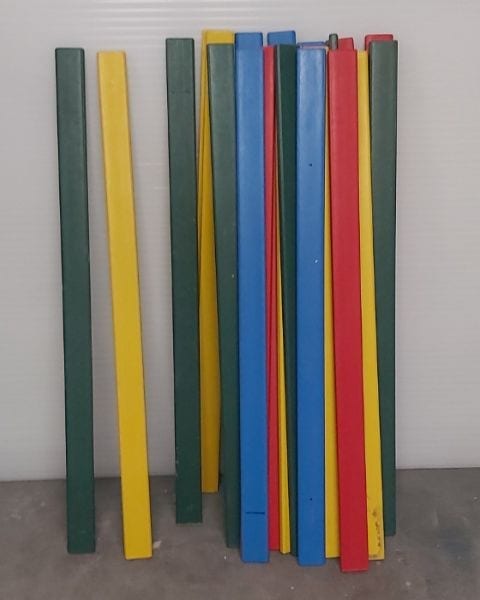
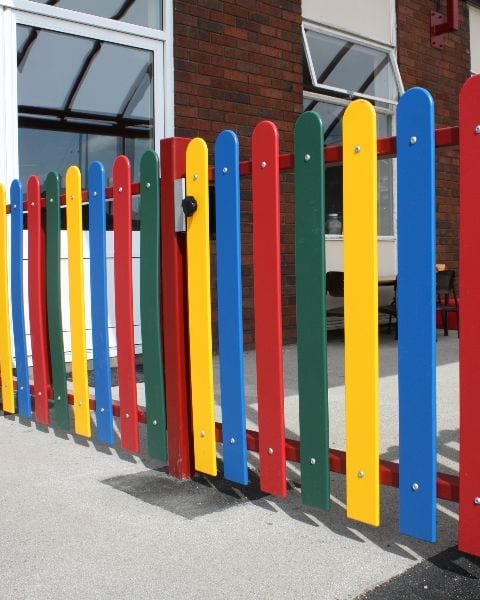


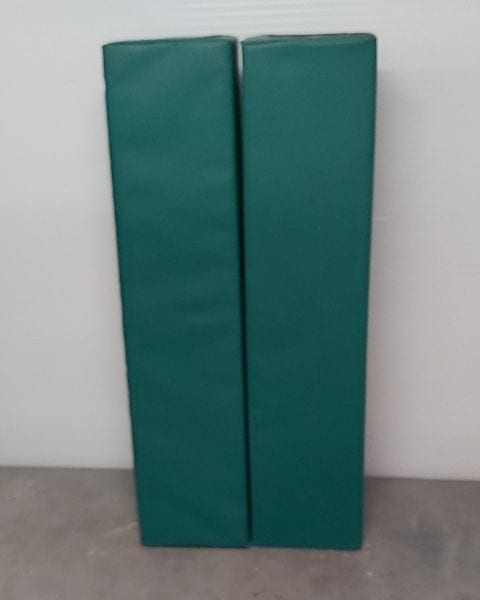
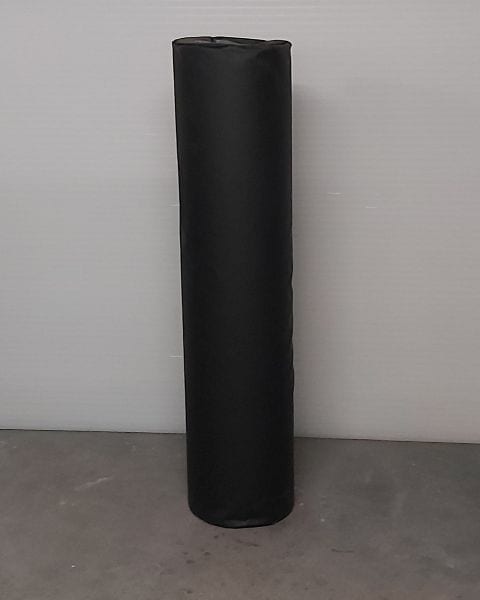

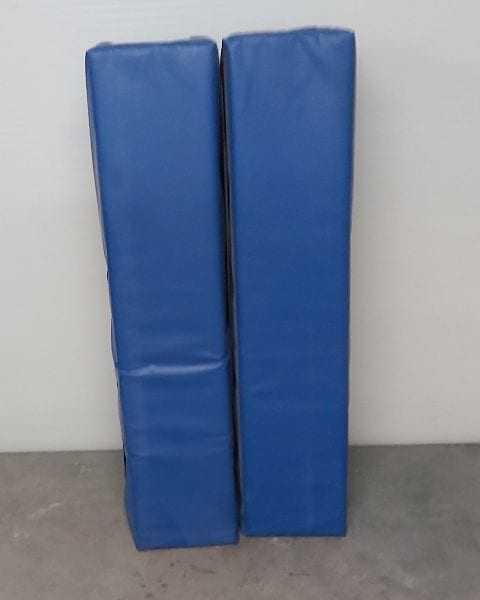

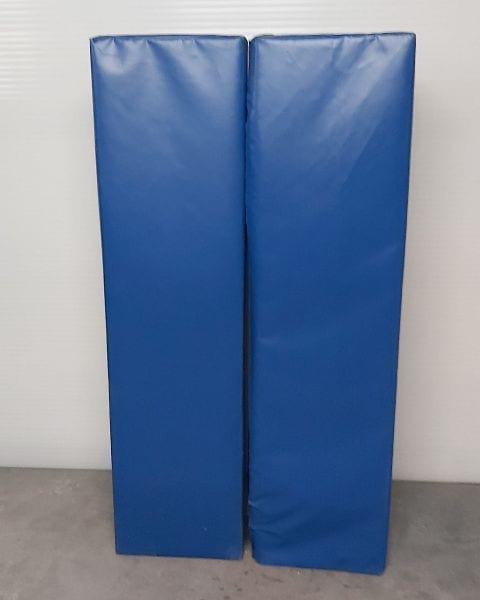


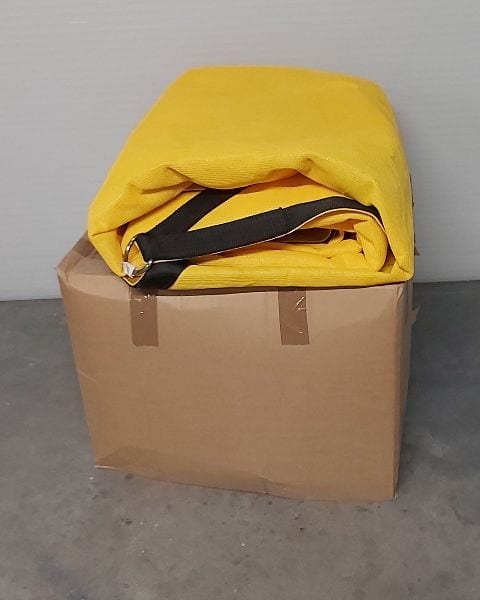


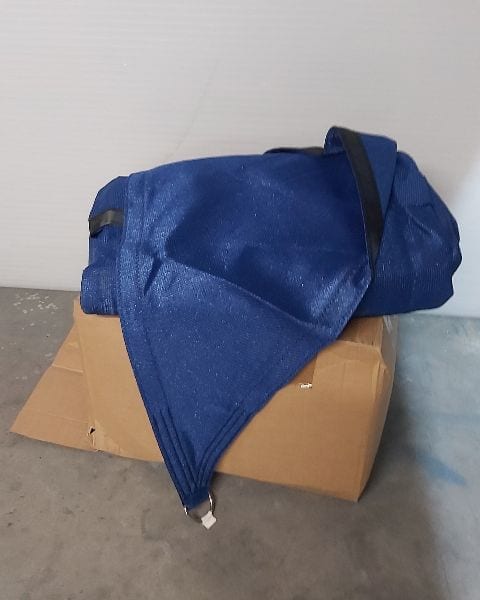



If you see something your school could use, please send an email to [email protected] and let us know why you’d like it.
